Programme overview per day
A variety of activities to spearhead market-ready technological solutions for the SDGs
Sponsored session
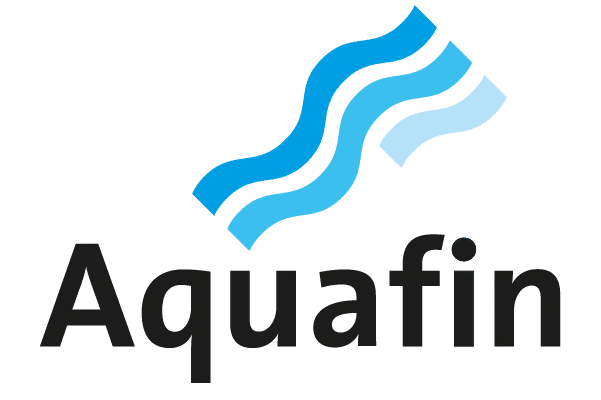
No water resilient cities without engaged citizens
G-STIC Conference
Watch our conference sessions. Sessions labeled were live-streamed from our studios in Brussels.
-
SPECIAL SESSIONIncentivising tech development to realise the Green Deal08:30 - 09:45
-
DEEP DIVE SESSIONDigital twins of biological cycles08:30 - 09:45
-
DEEP DIVE SESSIONGeothermal energy in district energy systems08:30 - 09:45
-
DEEP DIVE SESSIONUpscaling solutions for water supply systems08:30 - 10:00
-
PLENARY SESSIONRoundtable: Cooperation towards resilient water systems10:00 - 11:15
-
WORKSHOPHow SDG-proof is deep geothermal energy?10:00 - 11:30
-
DEEP DIVE SESSIONIncreasing the sustainability of energy storage11:00 - 13:00
-
DEEP DIVE SESSIONAir quality monitoring and forecasting11:30 - 13:00
-
DEEP DIVE SESSIONTEC session – Innovative approaches for climate adaptation technologies11:45 - 13:15
-
PLENARY SESSIONExpo 2020 Roundtable13:30 - 15:00
-
SPECIAL SESSIONFostering job creation by social entrepreneurs in Africa13:30 - 15:00
-
SPECIAL SESSION10-Member Group roundtable: Science and Technology advice for the SDGs15:15 - 16:45
-
DEEP DIVE SESSIONConnecting digital and circular strategies15:15 - 16:30
-
DEEP DIVE SESSIONThe future of ports and energy hubs15:15 - 16:30
-
THEMATIC SESSIONThe Blue Innovation Awards17:00 - 18:30
-
DEEP DIVE SESSIONInclusive early childhood education17:00 - 18:30
-
DEEP DIVE SESSIONSTI roadmaps as a tool for preparedness and build resilience to COVID and future health crises17:00 - 18:30
G-STIC Partner Events
Circular Economy ICT
Deep dive session
Digital twins of biological cycles
27/10/2020, 08:30 - 09:45
Digital technologies are being applied already in farming and biological material cycles. Examples of such applications need to be explored and discussed in more detail to understand how they could be transferred to the technological cycle of materials. In many cases, discussions about circular economy focus on the technological cycle while forgetting about the biological cycle. That needs to be reversed, exploring how digitalisation can link the two wings of the butterfly diagram.
Chaired by
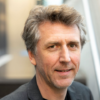
Karl Vrancken
VITO
Research Manager Sustainable Materials
Karl Vrancken is Research Manager Sustainable Materials Management at VITO. He is responsible for the strategic management of VITO’s Materials programme. He has a part-time assignment as professor at the University of Antwerp (Department of Bio-engineering), where he teaches sustainable resources management.
Karl has broad experience as a researcher and project manager in projects on sustainability assessment and transition, waste management and treatment, secondary raw materials, best available techniques (BAT) and integrated pollution prevention and control. He has also worked as a Detached National Expert with the European IPPC Bureau in Seville (Spain), where he was the author of the BAT Reference Document for the Foundries sector.
Karl is the initiator and chairman of the European Circular Economy Research Alliance (ECERA) and strategic advisor of the European Topic Centre on Waste and Materials for a Green Economy, a consortium of European organisations working in partnership with the European Environment Agency (EEA). During its start-up phase, he was interim Chief Operations Officer to the Knowledge and Innovation Community (KIC) EIT RawMaterials that was founded by the European Institute of Innovation and Technology (EIT). He is an expert speaker on circular economy in the media and at various national and international conferences.
Deep learning in deep nets: Helping fish farmers sustainably feed the world
While 70% of the world is covered by water, the oceans provide only 5% of the world’s protein. However, fish farming is the fastest growing sector of food production, especially as IoT computer vision and machine learning software are used to build the next generation of fish farming practices. Real-time fish farming data are not just used to understand fish growth, but also to optimize fish farming operations and provide a more environmentally sustainable source of protein in the long-term.

Bryton Shang
Aquabyte
CEO
Bryton Shang is the founder and CEO of Aquabyte, a Silicon Valley and Norway-based venture-backed company applying machine learning and computer vision to aquaculture fish farming for biomass estimation, sea lice counting, and feed optimization and formulation. Bryton was named to the 2019 Forbes 30 Under 30 in Manufacturing & Industry. Graduating at the top of his engineering class at Princeton University, Bryton has led several venture-backed start-ups. He built deep learning algorithms to diagnose cancer as the CTO of HistoWiz, a biotechnology firm. He also co-founded iQ License, a brand licensing platform, and Nikao Investments, an algorithmic trading firm.
Demands for agriculture in the future: how can digital technology lead to a circular economy?
Today there are several challenges for agriculture. A farmer has to focus on economy, on ecology, decrease the impact on climate change, and increase animal welfare aspects. All these requirements have to be kept in balance. Therefore, farmers can use digital tools to combine modern agriculture and circularity.

Bianca Lind
Veravis
Teamleader Sustainability
Bianca Lind is head of corporate sustainability for AGRAVIS, one of the leading agricultural cooperatives in Germany. She is focusing on the impact of AGRAVIS on sustainability goals and tries to find solutions for the entire value chain. As the former general manager at Bundesverband Rind und Schwein, the German umbrella organization for the cattle and pig industry, she has brought extensive experience in animal production systems, animal welfare, animal breeding, agricultural legislation, and lobbying.
How connectivity enables technologies like Artificial Intelligence to maximize the potential of the Agriculture sector
Agriculture is the oldest industry on earth and one of the most important sectors of our economy. Farmers today are facing some of the biggest challenges in the sector’s history as the global population grows, and more land and water are needed. These challenges come along with labour shortages, climate change, and increasing environmental regulation.
What is urgently needed, is an integrated approach to developing technical, policy and investment conditions to achieve sustainable agricultural development for food security under climate change.
Digital technologies such as Artificial Intelligence (AI), robotics, blockchain, High Performance Computing (HPC), Internet of Things (IoT) and 5G have the potential to increase farm efficiency while improving economic and environmental sustainability.
Smarter, digitally-enabled farming is proving to help farmers achieve more profitability and higher quality yields while increasing resource efficiency and curbing greenhouse gas emissions. IoT-based applications in smart agriculture are designed to enhance productivity. The future of farming lies in the benefits of connecting, collecting and analysing big data to maximize efficiency and increase productivity.

Hui Cao
Huawei
Head of Strategy & Policy
Dr Hui Cao’s broad experience in the telecommunications industry ranges from operations over academic research to sales. He has an in-depth knowledge of market trends, industry challenges, network deployment and technical development.
As head of Strategy & Policy at Huawei’s EU Public Affairs and Communication Office based in Brussels, Dr Hui Cao is responsible for regulatory issues on connectivity and innovative ICT technologies. Prior to this position, Dr Cao was the Network CTO in Huawei Western Europe region with a focus on the latest technologies to explore cost-effective solutions and practices to build an experience-oriented and future-proof broadband network with Simplicity, Automation and Intelligence. He also worked with China Telecom for Broadband network management and development.
Dr Cao obtained his doctoral degree in Electronic Engineering from Oxford Brookes University in the UK.
Q&A – digital twins of biological cycles
Circular Economy ICT
Deep dive session
Connecting digital and circular strategies
27/10/2020, 15:15 - 16:30
As functional electronics integrate digital technologies with cognitive functions, they enable a shift from purely physical integration to functional integration. Applications include the tracking and tracing of products, and information collection on the use and wear of materials. As such, that provides the technological basis for new circular business models. Meanwhile, we also need to consider the impact of functional electronics on product chains, in terms of recyclability, energy and resource needs, and dispersion of materials.
Chaired by

Jérôme Gavillet
CEA-Liten
European Programme Manager
Jérôme Gavillet graduated at l’Institut National des Sciences Appliquées (INSA) in Lyon and received his PhD on material physics & surface processing from l’Ecole des Mines de Nancy in 1996. As a researcher, he worked on hydrogen embrittlement of stainless steels for the oil & gas industry at the Federal University of Rio de Janeiro, on zircaloy alloy coatings for the French nuclear industry and on copper interconnects for the semiconductor industry at the University of York.
Jérôme Gavillet spent 7 years in microelectronics, working as a process engineer for equipment suppliers in Cardiff (UK), Sunnyvale (US) and Grenoble (F). He joined CEA-Liten in 2005 as a project manager in the field of Renewable Energy and Nanomaterials, working on surface energy and thermal management topics. He has authored 10 patents and over 40 publications.
Since 2012, he works as a European program manager, contributing to the management of CEA-Liten’s EU projects portfolio and developing business opportunities in the fields of materials, renewable energy, energy storage, energy efficiency and ICT, with a strong focus on Organic & Printed Electronics.
He is currently coordinating the ‘SmartEEs’ Digital Innovation Hub, a Smart Anything Everywhere European initiative to promote the adoption and transformation of Organic & Printed Electronics into business visions & concrete market cases. He is a Technical Session Chair of the LOPEC conference, the leading international event for printed electronics.
Functional Electronics as an Enabler for a Digital Circular Economy
Functional electronics enables ubiquitous sensing, autonomous operation of machines, energy efficiency and autonomy. First and foremost, however, it contributes to circular economy by economising on resources, materials, and energy use, and by taking a holistic approach at all steps of the value chain, from design to recycling or re-use.
The objectives and main deliverables of the 5E project clearly illustrate the potential of this new concept of functional electronics, and has resulted in a joint vision of the 5E consortium partners on the role of functional electronics as a key enabler for a green digital future.

Nicolas Gouze
VDI/VDE-IT
5E Project Coordinator
Nicolas Gouze has an engineer’s degree in optronics from the University Paris XI and studied Innovation Management at the University of Valenciennes (France). Since 2004 he is working with the Future Mobility and Europe Department of VDI/VDE Innovation + Technik GmbH in Berlin.
Nicolas is participating in the strategic activities of the Working Group on Healthy Living of EPoSS, the European Technology Platform for Smart Systems Integration. He is notably contributing to the writing of several strategic papers and roadmaps as well as supporting the integration of (end-)user requirements into Research and Innovation Priorities.
Furthermore, he is involved in several EU-funded Coordination and Support Actions along two major axes: fostering the transfer of innovative technologies into healthcare products and underpinning
digitalisation in a wide range of application sectors.
In this regard he is currently acting as the co-coordinator of the 5E project, which analysed the current European ecosystems in Nanoelectronics, Electronic Smart Systems, and Flexible, Organic and Printed Electronics and developed a joint vision to position electronics as a key enabler for a green digital future.
Printed Electronics as an enabling technology in a circular economy
A circular economy can only be realised through a smart combination of a consistent regulatory framework, convincing business models and enabling technologies. In fact, the three R’s (Reduce, Reuse and Recycle) can only be achieved with the help of new technologies.
In multiple ways, printed electronics could be one of the key technologies contributing to the achievement of more sustainable consumption and production processes. Even if the introduction of printed electronics slightly increases the ecological footprint, this is outweighed by far by the benefits that are realised through the additional functionalities. Those functionalities, for example, help reduce the waste of goods, minimise the loss of goods through tracking and enable reuse by identification.

Michael Korell
OE-A, sustainability Working Group
Project Manager - Intrapreneur
Michael Korell studied chemistry at the Ruhr-Universität Bochum, Germany and business administration at the FernUniversität Hagen. After completing his PhD in physical-organic chemistry, he joined Hüls AG in 1996 as a group leader. He was responsible for the development of industrial production processes of fragrances and agrochemical intermediates. In 1999, he moved to the United States and took on a marketing function for customer synthesis services for the agrochemical industry. After his return to Germany in 2006, he assumed global business responsibility for the Agrochemical Custom Manufacturing product line. In 2008 he became responsible for the global innovation management of the Coating & Adhesive Resins activities of Evonik.
In 2012, Michael Korell won the Intrapreneurship Award of the Coatings & Additives business unit of Evonik Industries AG with an idea to develop and market novel polymer-based energy storage materials. He was given the opportunity to fully concentrate on the realisation of this idea. He has built up a project team in the form of an internal start-up within the strategic innovation unit of Evonik and has recently launched the TAeTTOOz® technology.
Disruptive Technological Innovation and the Digital Circular Economy agenda in the Electronic Waste Management Sector
As the world’s largest multi-national centre of competence regarding operational know-how about the management of waste electrical and electronic equipment (WEEE), the WEEE Forum commissioned the European Policy Centre, a Brussels-based think tank, to undertake novel research into the role of digitalisation in improving WEEE management. In particular, this research looked into making this management more circular in the EU and worldwide, and how these efforts could be supported better through dedicated policies.
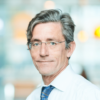
Pascal Leroy
WEEE Forum
Director-General
For the past twenty years, Pascal Leroy has worked at an international level in the field of electronic waste management and policies. First, he worked as a chief lobbyist at APPLiA, and since 2007 he is working as Director-General of the WEEE Forum, a worldwide association representing forty producer responsibility organisations.
Together with its members, the WEEE Forum is at the forefront of turning the extended producer responsibility principle into an effective electronic waste management policy approach through its combined knowledge of the technical, business and operational aspects of the collection, logistics, de-pollution, processing, preparing for reuse and reporting of e-waste.
The WEEE Forum’s mission is to be the world’s foremost e-waste competence centre excelling in the implementation of the circularity principle. Pascal Leroy is an expert in communication on complex, supra-national environmental legislation and policy, in particular regarding electronic waste recycling, and environmental challenges.
Q&A – connecting digital and circular strategies
Climate
Deep dive session
TEC session – Innovative approaches for climate adaptation technologies
27/10/2020, 11:45 - 13:15
To focus on policy issues related to the development of innovative approaches for climate adaptation technologies, this deep dive will focus on the activities of the Technology Executive Committee (TEC) as the policy arm of the Technology Mechanism of UNFCCC (United Nations Framework Convention on Climate Change). During this deep dive, TEC will reach out to relevant stakeholders and identify further opportunities for collaboration to strengthen its policy role. TEC will then take conclusions to the SDG Technology Facilitation mechanism and the SDG Forum, held yearly in New York.
Chaired by

Wytze van der Gaast
JIN Climate and Sustainability
Senior Researcher
Wytze van der Gaast is a senior researcher at JIN. He has extensive experience with EU-funded projects on low-emission economic transitions in both industrialised and developing countries. He is a regular advisor to the UNFCCC secretariat and the UN Technology Executive Committee on Technology Needs Assessments, development, and transfer of technologies for mitigation and adaptation in light of countries’ economic, environmental, and social priorities. In light of that, he has also focussed on Low Emission Development Strategies in relation to NAMA and NAP formulation and, green growth best practices with a specific focus on embedding low-emission and energy-efficient measures in countries’ socioeconomic priorities and planning.
Wytze van der Gaast is an affiliated partner of the Global Centre on Adaptation, which is an international organisation in support of scaling up solutions for climate change adaptation and making societies more resilient for climate change impacts. He has been a partner, on behalf of JIN, in fourteen EU-funded projects since 2001. Currently, he is involved in the RES4Build project with a task to consider end-user perspectives in integrated energy technology systems. As of September 2020, he will represent JIN in the Horizon 2020 WATERMINING project, with the task to connect technical optimisation of (desalinised) water supply with consumers. Finally, he is the executive secretary of the Green Deal National Carbon Market in the Netherlands which prepares methodologies and issues certificates for greenhouse gas emission reduction projects not covered by the EU ETS.
Opening remarks: TEC session

Robby Berloznik
VITO
Programme Director
Robby Berloznik holds a master’s degree in political science and international relations from the Free University of Brussels (VUB). He is a Senior Advisor and Research Leader for Society and Technology at VITO, the Flemish Institute for Technological Research, as well as the G-STIC Programme Director.
Robby has a long-standing career in technology assessment and foresight. From 2001 to 2012, he was Director of the Institute for Society and Technology at the Flemish Parliament. He also acts as an expert at the United Nations, the European Commission and the Organisation for Economic Co-operation and Development (OECD). In 2017, he was appointed a member of the Technology Executive Committee of the United Nations Climate Agency.

Mareer Husny
Technology Executive Committee
Chair
Mareer Mohamed Husny is an Assistant Director in the Climate Change Department of the Ministry of Environment, the Maldives, with a speciality in island coastal dynamics. Mr Husny is a lead author for the Maldives Second National Communication to the United Nations Framework Convention on Climate Change and a contributing author for the Maldives Climate Change Policy Framework. He is actively engaged and has contributed to developing the Maldives Climate Change Policy Framework, which will form the base of the Climate Change agenda in the Maldives. At the moment he is the Chair of the Technology Executive Committee of UNFCCC.
Panel discussion – Q&A TEC session

Pauline Lançon
Univers-Sel
Project Manager
Pauline Lançon has been working for UNIVERS-SEL for four years. Created by salt producers on the west coast of France, this association aims to contribute to the development of sustainable agriculture, through exchanges of know-how between producers and the promotion of environment-friendly production techniques. After two years working with women producing salt in Guinea Bissau, Pauline is now mainly coordinating UNIVERS-SEL’s projects in West Africa, working with salt and rice producers in mangroves areas.
Pauline Lançon holds a Master’s degree in environmental engineering, focused on sustainable technologies and ecosystem management. She completed this degree at the Environmental Management Engineering (EME) school in France, after obtaining a bachelor degree in environmental biology.

Richard Klein
Stockholm Environment Institute
Senior Research Fellow
Richard Klein (Stockholm Environment Institute, Bonn, Germany) has more than 25 years experience in original research, science assessment and policy advice on climate change adaptation. He has been a lead or coordinating lead author in six IPCC reports, including the 2000 Special Report on Technology Transfer.
Richard founded the journal Climate and Development in 2009 and served as its editor-in-chief for 10 years. He co-directed the Nordic Centre of Excellence for Strategic Adaptation Research in 2011–2016. He co-chaired the Science Committee of the World Adaptation Science Programme in 2018–2020. In 2016, he received the Burtoni Award in recognition of his work on climate change adaptation.

Christina Chan
Climate Resilience Practice, World Resources Institute
Director
Christina Chan is the Director of the Climate Resilience Practice at the World Resources Institute and Co-Director of the Global Commission on Adaptation. She leads an exceptional team of adaptation professionals who support communities and policymakers in understanding climate risks and vulnerabilities, as well as what works and why; integrating adaptation into policies and programs, and accessing financial resources.
Before joining WRI, Christina was a Branch Chief at the U.S. State Department’s climate change office. She led U.S. government efforts on global adaptation policy, launched several major adaptation partnerships, including the Adaptation Partnership and the National Adaptation Plan Global Network, and provided leadership on adaptation on the UNFCCC’s Adaptation Committee and Executive Committee to the Warsaw International Mechanism on Loss and Damage. Christina also spent eight years with CARE, helping communities reduce their disaster-related risks and leveraging CARE’s on-the-ground work with communities to inform CARE International’s policy advocacy with the U.S. and global climate change policy.
Christina holds a graduate degree in Urban and Regional Planning from Cornell University and an undergraduate degree in Human Biology from Stanford University.

Wytze van der Gaast
JIN Climate and Sustainability
Senior Researcher
Wytze van der Gaast is a senior researcher at JIN. He has extensive experience with EU-funded projects on low-emission economic transitions in both industrialised and developing countries. He is a regular advisor to the UNFCCC secretariat and the UN Technology Executive Committee on Technology Needs Assessments, development, and transfer of technologies for mitigation and adaptation in light of countries’ economic, environmental, and social priorities. In light of that, he has also focussed on Low Emission Development Strategies in relation to NAMA and NAP formulation and, green growth best practices with a specific focus on embedding low-emission and energy-efficient measures in countries’ socioeconomic priorities and planning.
Wytze van der Gaast is an affiliated partner of the Global Centre on Adaptation, which is an international organisation in support of scaling up solutions for climate change adaptation and making societies more resilient for climate change impacts. He has been a partner, on behalf of JIN, in fourteen EU-funded projects since 2001. Currently, he is involved in the RES4Build project with a task to consider end-user perspectives in integrated energy technology systems. As of September 2020, he will represent JIN in the Horizon 2020 WATERMINING project, with the task to connect technical optimisation of (desalinised) water supply with consumers. Finally, he is the executive secretary of the Green Deal National Carbon Market in the Netherlands which prepares methodologies and issues certificates for greenhouse gas emission reduction projects not covered by the EU ETS.

Thin Thuzar Win
Environmental Conservation Department, Myanmar
Deputy Director Climate Change Division
Thin Thuzar Win is a Deputy Director at the Climate Change Division of the Environmental Conservation Department, Myanmar. Thin has 12 years of experience in the Ministry of Industry, including 3 years of experience in the Renewable Energy sector. In 2018, she transferred to the Ministry of Natural Resources and Environmental Conservation and became responsible for the Climate Change Division of the Environmental Conservation Department. Now, she is working as the CTCN – NDE of Myanmar and the National Coordinator of TNA. She is actively participating in Myanmar climate change activities.

Ali Raza Rizvi
International Union for Conservation of Nature
Programme Manager, Ecosystem-based Adaptation
Ali Raza Rizvi has been involved with the conservation & development sector for over two decades and has managed programmes and projects worldwide. In his current position, he is responsible for IUCN’s global climate adaptation and disaster risk reduction work, based at its Washington DC Office. He provides strategic direction and operational guidance for the development and implementation of IUCN’s portfolio on Ecosystem-based Adaptation. Ali also serves as a technical and policy focal point and represents IUCN at international policy fora, including the UNFCCC on Adaptation and Loss & Damage.
Closing remarks – TEC session

Wytze van der Gaast
JIN Climate and Sustainability
Senior Researcher
Wytze van der Gaast is a senior researcher at JIN. He has extensive experience with EU-funded projects on low-emission economic transitions in both industrialised and developing countries. He is a regular advisor to the UNFCCC secretariat and the UN Technology Executive Committee on Technology Needs Assessments, development, and transfer of technologies for mitigation and adaptation in light of countries’ economic, environmental, and social priorities. In light of that, he has also focussed on Low Emission Development Strategies in relation to NAMA and NAP formulation and, green growth best practices with a specific focus on embedding low-emission and energy-efficient measures in countries’ socioeconomic priorities and planning.
Wytze van der Gaast is an affiliated partner of the Global Centre on Adaptation, which is an international organisation in support of scaling up solutions for climate change adaptation and making societies more resilient for climate change impacts. He has been a partner, on behalf of JIN, in fourteen EU-funded projects since 2001. Currently, he is involved in the RES4Build project with a task to consider end-user perspectives in integrated energy technology systems. As of September 2020, he will represent JIN in the Horizon 2020 WATERMINING project, with the task to connect technical optimisation of (desalinised) water supply with consumers. Finally, he is the executive secretary of the Green Deal National Carbon Market in the Netherlands which prepares methodologies and issues certificates for greenhouse gas emission reduction projects not covered by the EU ETS.

Stephen Minas
Technology Executive Committee (TEC)
Vice-Chair
Stephen Minas is an Associate Professor of Law at the School of Transnational Law of Peking University, and a Senior Research Fellow in the Transnational Law Institute of King’s College London. He completed Honours degrees in Law and History at the University of Melbourne, an MSc in International Relations at the London School of Economics, a PhD in Law at King’s College London and a Graduate Diploma of Legal Practice.
Stephen Minas’ research and teaching interests include energy law, climate change law, finance law, public international law, especially international organization, law of the sea & international environmental law, transnational law, international dispute resolution and sustainable development. At the moment he is the Vice-Chair of the Technology Executive Committee (TEC) of the UNFCCC.
Climate
Deep dive session
CO2 as a resource
26/10/2020, 17:00 - 18:30
The IPCC’s ambition to limit temperature increase to 2°C above pre-industrial levels not only requires the gradual reduction of CO2 emissions from industry, fuel burning and land use. CO2 capture and valorisation strategies need to be deployed as well. While Carbon Capture and Utilisation (CCU) pathways are a postponement of CO2 emissions, Carbon Capture and Storage (CCS) from industrial point sources is considered as feedstock supply. Direct Air Capture (DAC) would imply an upgrade from a pure CO2-emission-avoiding tool to a net-zero-emission tool in the battle against climate change.
Education
Deep dive session
Inclusive early childhood education
27/10/2020, 17:00 - 18:30
To ensure digital technology and Artificial Intelligence (AI) provide equitable and inclusive access to education, we have to focus on closing digital divides. Even where getting online is possible and affordable, extra efforts are needed to empower groups that are discriminated against and excluded. At the same time, we should be careful not to create any new kind of digital divides when deploying solutions powered by AI. These solutions need to focus entirely on providing learning opportunities for all, including marginalised people, people with disabilities, refugees, and those living in isolated communities.
Chaired by

Jan De Groof
College of Europe
Professor
Jan De Groof is professor at the College of Europe (Bruges, Belgium) and at Tilburg University (the Netherlands), at the National Research University – Higher School of Economics in Moscow and extraordinary professor at the Edu-HRight Research Unit, North West University (South Africa) and previously at Ghent University (Belgium), teaching international and comparative educational law and policy. His academic work and numerous publications have covered many education rights-related issues but also constitutional and human rights law. His doctoral students, coming from several continents, focus on various aspects of the Right to Education.
De Groof has been visiting professor and/or taught at universities worldwide. He is founder and president of the European Association for Education Law and Policy (ELA) and co-founded the Russian and South-African Education Law Associations. He chaired – at the request of all regional Education Law and Policy Associations – the two World Conferences on Human Dignity, the Right to and Rights in Education (Amsterdam/The Hague, Brussels). De Groof holds the UNESCO Chair for the Right to Education and is former UNESCO Chargé de Mission on the Right to Education (2007-2010). He was and remains intensively involved in consultancy for national parliaments, governments and stakeholders, not the least in time of transition (Russia: 1990-2000, South Africa: 1995-2002), often in cooperation with multilateral organisations. He is member of the ‘Council of Senior Advisors’ of the International Association of University Presidents (IAUP), accredited to the UN, and vice-chair of the Legal Committee of EQAR. Furthermore, De Groof has been Team Leader of the EU-Project ‘The Rule of Law – Curriculum Reform of Legal Studies in Universities, especially in Iraq’.
In 2015 he received an Honorary Doctorate from the University of Pretoria (South Africa), giving “recognition to his significant role as leader in various fields of education and law, his global influence in education law during the late 20th and the 21th century, as well as his assiduous campaigning for justice and good governance in education,” and also chaired the Law Sessions in the framework of the World Congress on Catholic Education (Vatican, November 2015).
Artificial Intelligence and inclusive education

Nuria Oliver
Vodafone Institute
Chief Advisor
As the named inventor of 41 patents, computer scientist Nuria Oliver is well known for her work in computational models of human behaviour, human computer-interaction, intelligent user interfaces, mobile computing and big data for social good. She invests significant effort in outreach efforts to make technology more accessible to non-technical audiences and to inspire young people (girls in particular) to pursue a career in technology.
Nuria Oliver holds a PhD from the Media Lab at MIT. She is a Fellow of the European Association of Artificial Intelligence (EAAI) and of the Institute of Electrical and Electronics Engineers (IEEE), a member of the Academia Europaea and the youngest female member of the Spanish Royal Academy of Engineering.
In 2018 she was named Engineer of the Year by the Professional Association of Telecommunication Engineers of Spain and she received an honorary doctorate from the University Miguel Hernandez.
Combining Artificial Intelligence and inclusive education technologies
Adaptive educational technologies as well as inclusion are two research fields that have a huge impact on current educational questions. Nevertheless, they are seldom seen together, which explains why there are not too many results in the intersection of both fields yet. It is therefore important to discuss possible directions for combining Artificial Intelligence in Education (AIED) and inclusive educational technologies, and illustrate this with some emerging practices.
Looking at the history of adaptive learning technologies and assistive technology (AT), it is interesting to highlight the impairment/disability dimension of inclusion and the combination of accessibility/inclusion with Artificial Intelligence (AI). At the same time, we should focus on the cultural dimensions of inclusion and the impact on AI in learning technologies and discuss the origins of cultural biases in technology. As gender and ethnicity are connected to this cultural dimension, they should therefore be considered in this discussion as well. Finally, a clear description should be available regarding the requirements for combining AI and inclusive learning technologies in the future. There is a need for more awareness of possible biases when creating learning systems and training algorithms with suitable data sets.

Gunay Kazimzade
Weizenbaum Institute for the Networked Society
Researcher
Gunay Kazimzade is a PhD student in Computer Science at TU Berlin, an award-winning Doctoral Researcher on Artifical Intelligence and a TEDx speaker. She is the founder of TechCentrum, a knowledge exchange platform in Emerging Technologies focusing on Data Science, Artificial Intelligence and Big Data. She also managed a number of social projects focused on computer science education, training over 3000 women and children in science, technology, engineering and mathematics.
Gunay is working at the Weizenbaum Institute for the Networked Society, the German Internet Institute. This institute investigates the current changes in all aspects of society occurring in response to digitalisation. The goal is to develop a comprehensive understanding of these changes based on rigorous academic analysis and to offer informed strategies to address them at a political and economic level.
Digital technologies and the empowerment of parents
Early childhood is not just the most crucial period in the life of children, but also very important in the lives of their parents. With the right support for educating children, the family can create a solid base for success in life. In the spirit of global Early Childhood Development policies and the UN Convention on the Rights of the Child, governments are to offer such support in forms and means that are most suitable for families.
During the first two years in the life of any child, this support should encourage education in the family and close community. Digital technologies are already there to provide empowerment and peer support for parents with very young children. Later on, the focus should also be put on formal education provisions. From a parental engagement perspective, this is a crucial time for equity and inclusion as vulnerable parents can be empowered to become equal partners of education professionals.
This kind of arrangement can have a major impact on children’s later success in formal education. We should therefore carefully look at the large evidence base as well as the many examples of existing and possible technology solutions to support this crucial parenting period as a means of inclusion for all.

Eszter Salamon
International Parents
Director
Eszter Salamon is the Director of Parents International. Whereas she was originally trained as a teacher and practiced this profession for a number of years, she later became an economist and obtained a PhD in education leadership, with a special focus on parental engagement. In 1989, Eszter started dealing with children’s rights. Over the past 22 years, she has specialized in students’ rights and parents’ rights. For over a decade, she has been involved in international education and social topics, primarily focusing on the role, engagement and competences of parents.
Plenary
Special session
Sustainable Finance for Business Transformation
27/10/2020, 11:00 - 12:30
This plenary session, which is organised by CSR Europe in cooperation with G-STIC, is part of the European SDG Summit that aims to connect 5000+ actors through Plenary sessions and 40+ European and National Roundtables. CSR Europe is the leading European business network for Corporate Sustainability and Responsibility. With its corporate members, National Partner Organisations (NPOs), and Associated Partners, CSR Europe supports 10.000 businesses & industry sectors in their transformation and collaboration towards practical solutions and sustainable growth, co-building with the European leaders and stakeholders an overarching strategy for a Sustainable Europe 2030.
In the aftermath of the COVID-19 outbreak, restoring the old economic order is not an option to achieve sustainable growth. That would only increase inequalities and proliferate unsustainable practices, creating new risks and uncertainties.
If we want to build back better and leave no one behind, we have to learn from this crisis. We urgently need to realise a green transition, decoupling economic development from environmental degradation and shifting from a volume-driven to a value-driven economy. The UN Sustainable Development Goals provide the framework to reach the ambitions set out in Europe’s Green Deal and Industrial Strategy.
Finance and investment will play a key role in this. The development of new technologies and sustainable solutions requires significant R&D investments, while scaling-up impact investments are needed to bring these solutions to the market. In this way investors, governments and companies can define the boundaries of the new economic system. The role of the financial sector and the responsibility of corporate Chief Financial Officers are the keys to success.
Speakers and high-level panellists will highlight the EU policy direction to expand the European Taxonomy and review Corporate Non-Financial Disclosure rules, while others will provide updates on their contributions to a global impact measurement and valuation standard for monetizing and disclosing impacts of corporate activity.
Shifting from a volume to a value driven economy

H.E. Paolo Gentiloni
European Commission
Commissioner for Economy
Paolo Gentiloni has been appointed European Commissioner for Economy in 2019. His primary responsibilities include the coordination of the implementation of the Sustainable Development Goals in the context of the European Semester cycle of economic governance, and further deepening the European Economic and Monetary Union.
Commissioner Gentiloni is coordinating the launch of the InvestEU programme and setting up and implementing the Sustainable Europe Investment Plan. He leads international efforts to find an agreed approach on the taxation of the digital economy and pursuing efforts to make a common consolidated corporate tax base a reality in the EU. In the framework of the European Green Deal, he is leading the review of the Energy Taxation Directive and preparing the proposal for a Carbon Border Tax.
Before his appointment as EU Commissioner for Economy, Paolo Gentiloni has been a Member of the Italian Chamber of Deputies since 2001. He was Prime Minister of Italy from 2016 to 2018, Minister of Foreign Affairs and International Cooperation from 2014 to 2016, Member of the Committee on Foreign Affairs from 2013 to 2014 and Minister of Communications from 2006 to 2008. As a former professional journalist, he has also been the Chairman of the Broadcasting Services Watchdog Committee from 2005 to 2006 and a spokesperson for the Mayor and Commissioner in the City of Rome from 1993 to 2000.
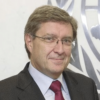
Enrico Giovannini
Alleanza Italiana per lo Sviluppo Sostenibile (ASviS)
Former Italian Minister of Labour and Social Policies,
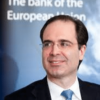
Hakan Lucius
European Investment Bank
Head of Corporate Responsibility and Stakeholders Engagement

Pascal Canfin
European Parliament
Chair Committee on the Environment, Public Health and Food Safety

Sirpa Pietikainen
European Parliament Group of the European People’s Party
Member of the European Parliament, CoRapporteur Taxonomy Dossier

Antoni Ballabriga
Banco Bilbao Vizcaya Argentaria (BBVA)
Global Head of Responsible Business

Hans Daems
Hitachi
Chair of the Board of CSR Europe and Group Public Affairs Officer Hitachi

Saori Dubourg
BASF SE and Value Balancing Alliance
Member of the Board of Executive Directors

Hacina Py
Société Générale
Head of Impact Finance Solutions

Kaarina Kolle
WWF
Finance and Utility Coordinator/European Beyond Coal Campaign
Oceans
Thematic session
The Blue Innovation Awards
27/10/2020, 17:00 - 18:30
Do you want to find out more about innovation initiatives in the blue economy in Flanders? Tune in to the Blue Innovation Awards, become acquainted with the different nominees and cast your voice for our audience award.
The Blue Innovation Awards is a Blue Cluster initiative to give exposure to promising projects, products and services within the fast-growing blue economy in Belgium. The award ceremony will be presented by Francesca Vanthielen and include a performance by Belgian soprano Astrid Stockman.
Meet our eight nominees:
Blue Innovation Wave (for SMEs):
- Nearshore Mussel Project (Brevisco)
- Real-time Undersea Cable Monitoring (Marlinks)
Corporate Blue Innovation Wave (for large companies)
- Dual-Fuel Hydrogen Engine (BeHydro)
- Marine Litter Hunter (DEME)
Blue Innovation Swell (for collaboration initiatives)
- A Hybrid Wave Energy Converter for ports – WEC4PORTS (IMDC, UPorto, INEGI and ECT)
- Coastbusters (ILVO, DEME, Jan De Nul, SIOEN Industries and VLIZ)
Blue Innovation Captain (for government institutions)
- Blue Accelerator (West Flanders Provincial Development Agency)
- Renovation of the seawall of Westende (Municipality of Middelkerke and Agency for Maritime and Coastal Services)
Have your say: the Inspirational Blue Wave award
You hold the power to decide the winner of our audience award. Which candidate inspired you the most? Which project do you believe makes it possible to achieve a sustainable blue economy with a positive environmental impact? Cast your vote (on site or online) at the end of the ceremony and tell us who you think deserves to win the first Inspirational Blue Wave Award.
About Blue Cluster
Blue Cluster is a network of innovative businesses that focus on the development and promotion of sustainable economic activities at sea. This network supports companies in a neutral manner in setting up partnerships with other companies, knowledge institutions and government bodies to develop and implement innovation projects. Blue Cluster also stimulates knowledge sharing and strives to increase societal support for the Blue Economy.
Oceans Energy
Deep dive session
The future of ports and energy hubs
27/10/2020, 15:15 - 16:30
The European Union intends to increase the installed offshore wind capacity to 450 GW by 2050, the hundredfold of the currently installed capacity. Ports are the gateway towards future offshore renewable energy hubs. They are essential for the creation of multifunctional renewable energy islands, the maintenance of offshore wind farms and the production of fuel. And since ports serve as the central hub for the shipping industry, their investments regarding offshore renewable energy will also be decisive for the shift towards a clean shipping industry.
Chaired by
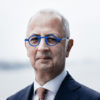
Marc Nuytemans
Blue Cluster
CEO
Marc Nuytemans is CEO of Blue Cluster. From January 2009 till November 2019, he was Managing Director of Exmar Shipmanagement and a member of the executive committee of Exmar, a Belgian listed maritime company. He lectures at the University of Antwerp on shipping and shipping management since 2000.
After an extensive career at sea, he became fleet personnel manager at CMB in 1997. In 2000, he took up the position of Managing Director of the Royal Belgian Shipowners’ Association, leading the revival of the Belgian register.
Marc Nuytemans is a member of the board of several companies and organisations, including BRABO (a company providing port services such as pilotage, mooring and unmooring), Caritas International (an NGO helping victims of war, natural disasters, migration and poverty in more than 200 countries and regions) and the Royal Belgian Shipowners’ Association, where he also serves as a member of the remuneration committee.
Building the Energy Port of the Future in Antwerp
Ports being the gateway towards on- and offshore renewable energy hubs and the central hub for the shipping industry, the choices they make will be decisive for the shift towards a clean shipping industry and for the energy transition in general. As one of Europe’s leading ports, the Port of Antwerp has an exemplary role to play in shaping the vision for effectively making the energy transition happen. Showcases of necessary actions on how to provide the ports and the incoming vessels with large-scale renewable energy and green fuels along with the impact on infrastructure and international cooperation, will provide an insight into the future-proof port.

Piet Opstaele
Port of Antwerp
Innovation Enablement Manager
As the innovation ‘enablement’ manager for the Port Authority, Piet Opstaele is one of the drivers of the digital and innovation transition in the Port of Antwerp. Based on a founded strategy with a pragmatic approach in executing concrete innovation projects, he makes the ‘Port of the Future’ tangible and leads the development of Port of Antwerp as an open innovation platform. On this platform, startups, companies, knowledge institutions and other authorities can create new value for the Antwerp port ecosystem.
In the 1990’s, Piet Opstaele started at Tele Atlas, a producer of digital geographic data and one of the most successful start-ups in the Benelux, acquired by TomTom in 2008. Between 2011 and 2014 he managed a consultancy firm and was closely involved in start-ups in the energy sector. Piet holds Master degrees in History and Spatial and Urban Planning, Post-graduates in energy and environmental management, and an MBA International management.
What if we could start tomorrow?
The European Network of Maritime Clusters can rely on decades of experience in the European offshore and maritime sector. This cluster is a strong mix of knowledge institutes, shipbuilders, shipowners, ports, suppliers and start-ups bringing innovative solutions into the industry. Capital is available, and new funds arise on the horizon. It is up to this generation to unlock the potential and work towards a blue economy.

Marjolein van Noort
European Network of Maritime Clusters
Coordinator of ENMC
Marjolein van Noort is an economist who started her career at the Dutch Ministry of Finance in the field of state-owned enterprises and international finance solutions. Her interest in the maritime industry led to a switch to the private sector where she worked for a shipbuilding company before joining the Royal Association of Netherlands’ shipowners. Besides that, she is the coordinator of the European Network of Maritime Clusters. The balance between government and private funding and the push for a sustainable maritime industry through innovation are two key themes in her career.
Challenges in offshore energy and importance for the maritime sector

Nathalie Oosterlinck
DEME
Head of Special Projects
Nathalie Oosterlinck is heading DEME Concessions, the offshore wind & renewable participations of DEME Group, representing 1200MW of offshore wind capacity. She is also leading the development of the first industrial-scale green hydrogen plant that DEME is developing together with other partners in Ostend (Belgium). She is responsible for Special Projects such as Energy islands and multi-use concessions areas.
From 2012 until early 2020, Nathalie Oosterlinck was CEO of RENTEL and OTARY. She has been a driving force in the set-up, management and development of Otary’s offshore wind concessions in the Belgian North Sea, totalling 800 MW since start-up. Nathalie has been active in the renewable energy sector for nearly 18 years, with executive management roles in project development, construction, financing & transactions and daily management of clean-tech projects. She has been active in the wind sector since 2010.
Nathalie Oosterlinck is member of the Board of Directors at the Belgian Offshore Platform and Advisory Board of Blue Cluster and takes an active role in advocating renewables, innovation and technology. She ranked 37 on the Top 100 Women Working in Wind – Women’s Power List, published March 2017, and ranked 38 on the European Power List 2019, Top 100 People in European Wind, published 2019.
Plenary
Special session
10-Member Group roundtable: Science and Technology advice for the SDGs
27/10/2020, 15:15 - 16:45
The members of the United Nations Technology Facilitation Mechanism’s (TFM) 10-Member Group of High-level Representatives on Science and Technology Advice for the SDGs will discuss lessons-learnt from the science-policy responses to the COVID-19 pandemic. They do so with a view to find ways to strengthen how science and technology are harnessed, not just in this case but also for meeting all the global challenges enshrined in the Sustainable Development Goals.
Even though most decision makers and the general public agree that science and technology are key to overcoming the current COVID-19 crisis, the extent to which policy is actually shaped by the balance of scientific evidence and by technological possibilities is far from clear.
The current COVID-19 pandemic is a wake-up call that painfully highlights areas for urgent improvement in science-policy advisory systems, in the wider science-policy-society interfaces, and especially in the international science and technology cooperation against the common enemy of humanity – the virus.
In the past months, various expert conversations on this topic have been convened by the UN and organised science and technology communities. This 10-Member Group roundtable is an opportunity to take stock of how far we have come in the process, guided by questions focused on 3 concrete topics.
Ultimately, this roundtable discussion will contribute to supporting international cooperation on science and on science-policy advice to save lives – not only in the current pandemic – but well beyond it.
Welcome
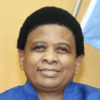
Agnes Lawrence Kijazi
Tanzania Meteorological Agency
Director General
Agnes Lawrence Kijazi was elected Third Vice-President of the World Meteorological Organization (WMO) by the Eighteenth World Meteorological Congress in 2019 for a four-year term beginning immediately after the closure of the Congress. She has been the Director General of Tanzania Meteorological Agency since 2011.
She was inspired to become a WMO Vice-president in order to take on a leading role in the global implementation of the WMO Vision, Strategic and Operational Plan on reforms to better address the Global challenges of the 21st Century. She is convinced that the WMO reform will be of great benefit to Members and she strives to ensure that no Member is left behind.
Agnes Kijazi has been active at the international level in WMO, the United Nations and as Vice Chairperson of the Meteorological Association of Southern Africa (MASA). She is an advocate for gender mainstreaming within the National Hydrological and Meteorological Services and in the entire WMO Community.
Agnes Kijazi rose from the lowest rank in the field of meteorology, as a Meteorological Assistant, to become the Director General of Tanzania Meteorological Agency in 2011. She became the first woman in the East African Region to hold a top position in a national service and to be elected to the WMO Executive Council. She has also extensively contributed to the development and implementation of various WMO programmes at country, regional and global levels. Prior to her appointment as Director of the Agency, she was Director of its Technical Services from 2007 to 2011 and Manager of Modelling and Verification from 2004 to 2006.
Science-policy responses to the COVID-19 pandemic
In the midst of the current COVID-19 pandemic, it is more urgent than ever to have multi-stakeholder cooperation to help address the current crisis, mitigate its longer-term impacts, and – in a broader sense – prepare for future challenges that can threaten progress on the 2030 Agenda.
So what lessons have been learnt from the COVID-19 responses for improving science and technology advisory systems? And how can these lessons help us to be better prepared for future pandemics and sustainable development crises?
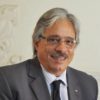
Paulo Gadelha
Fiocruz
Coordinator Fiocruz Strategy for 2030 Agenda
As the coordinator of the FIOCRUZ Strategy for the 2030 Agenda, Paulo Gadelha is in charge of promoting FIOCRUZ’ strategic engagement with the Agenda’s aspirational principles and goals. His background in technology includes studies of the application of technology in public health, healthcare models, and the history of Science, Technology & Innovation.
Paulo Gadelha was FIOCRUZ President from 2009 to 2016, leading scientific achievements in biomedical sciences, the generation of scientific and technological knowledge, and the promotion of health and social development. Previously, he founded and directed the “Casa de Oswaldo Cruz”, a FIOCRUZ Institute dedicated to the sociology and history of science and health.
Paulo served as a member of the National Health Council’s Science and Technology Intersectoral Commission. As President of the Brazilian Association of Collective Health, he chaired the 11th World Congress on Public Health. In cooperation with UN/DESA, he headed FIOCRUZ’s efforts in organizing the 1st International Consultation on Science, Technology and Innovation in the implementation of the 2030 Agenda and its health-related goals in 2017.

Ada Yonath
Weizmann Institute of Science
Director and Nobel Laureate
Ada Yonath is an Israeli crystallographer best known for her pioneering work on the structure of the ribosome. She is the current director of the Helen and Milton A. Kimmelman Center for Biomolecular Structure and Assembly of the Weizmann Institute of Science.
In 2009, Yonath received the Nobel Prize in Chemistry along with Venkatraman Ramakrishnan and Thomas A. Steitz for her studies on the structure and function of the ribosome, becoming the first Israeli woman to win the Nobel Prize out of ten Israeli Nobel laureates, the first woman from the Middle East to win a Nobel prize in the sciences, and the first woman in 45 years to win the Nobel Prize for Chemistry.

Michiharu Nakamura
Japan Science and Technology Agency
Senior Advisor (Former President)
Nakamura graduated from the University of Tokyo and joined Hitachi Central Research Laboratory in 1967, where he was engaged in compound semiconductors and optoelectronics research. He was a pioneer of semiconductor DFB laser development. In 2004, he was appointed Executive Vice President and Executive Officer of Hitachi Ltd., and then assumed a position of Board of Director till September 2011. He was responsible for corporate technology development and new business incubation. He was a visiting Researcher at California Institute of Technology in 1972-73. He is entitled IEEE fellow, JSAP fellow, and IEICE fellow for his engineering achievements in optoelectronics.
In 2011, he assumed the office of the President of Japan Science and Technology Agency (JST), where policy-driven R&D funding is a major mission. Also, the dissemination of scientific information, science education for young generation, and science communication are among its current activities. He endeavoured to achieve high-impact innovations based on advanced R&D. After completing four- year presidency, he has been serving as the Counsellor to the President and Advisor for Science and Technology of JST since October 2015.
He has been actively working on industrial science and technology strategy. He served as Working Committee Chairman of Council of Competitiveness Japan (COCN) from 2008-2011 and pursued new industrial R&D initiatives under close collaboration with government and academia. He also served for Industrial R&D Committee of the Japan Business Federation, Tsukuba Global Innovation Promotion Agency, Industrial Committee for Supercomputing Promotion, Industrial User Society for Neutron Application, and Nanotechnology Business Creation Initiative.

Guo Huadong
Institute of Remote Sensing and Digital Earth
Chairman
Guo Huadong is a Professor at the Chinese Academy of Sciences (CAS) Institute of Remote Sensing and Digital Earth (RADI), an Academician of CAS, a Foreign Member of the Russian Academy of Sciences (RAS), and a Fellow of The World Academy of Sciences (TWAS).
He presently serves as President of the International Society for Digital Earth (ISDE), Director of the International Center on Space Technologies for Natural and Cultural Heritage (HIST) under the Auspices of UNESCO, and Editor-in-Chief of the International Journal of Digital Earth.
Professor Guo Huadong served as President of the ICSU Committee on Data for Science and Technology (CODATA). He has over 30 years of experience in Earth observation, specializing in radar remote sensing and Digital Earth science. He has been Principle Investigator for over 30 major national projects in China, and Principle Investigator for 7 international radar remote sensing projects. He has published more than 400 papers and sixteen books, and is the principal awardee of sixteen domestic and international prizes.

Špela Stres
Transfer Center for Jožef Stefan Institute
Director of Innovation and Technology
Špela Stres is the Director of Innovation and Technology at the Transfer Center for the Jožef Stefan Institute and a visiting lecturer at the University of Ljubljana. She started her career in research at the Jožef Stefan Institute and continued as a Research Associate at Deutsches Elektronen Synchroton (DESY) in Hamburg, Germany. After an engagement in the industry, she returned to the Jožef Stefan Institute as a Senior Researcher. She managed the Communication and TechTransfer Unit, coordinated Enterprise Europe Network and supervised creation of several spinout companies in the field of material science and ICT.
Špela Stres was the first president of the Slovene Technology Transfer Association. She served as a Board Member of the CERN Technology Transfer Network and as a Vice-President of ASTPProton, Knowledge Transfer Europe, European Association of Science and Technology Professionals. She has vast experience in European Commission programs. She is a European Research Council Evaluator and an Advisory Group Member for The Directorate General for Communications Networks, Content and Technology and The Directorate-General for Research and Innovation.
She is a member of the UN’s 10-Member Group supporting the Technology Facilitation Mechanism (TFM) on the Sustainable Development Goals. She holds a PhD in Physics from the University of Ljubljana, a Master Degree of Law in the field of Intellectual Property from the University of Turin and the World Intellectual Property Office, Geneva and an Executive MBA from the Cotrugli Bussines School.

Agnes Lawrence Kijazi
Tanzania Meteorological Agency
Director General
Agnes Lawrence Kijazi was elected Third Vice-President of the World Meteorological Organization (WMO) by the Eighteenth World Meteorological Congress in 2019 for a four-year term beginning immediately after the closure of the Congress. She has been the Director General of Tanzania Meteorological Agency since 2011.
She was inspired to become a WMO Vice-president in order to take on a leading role in the global implementation of the WMO Vision, Strategic and Operational Plan on reforms to better address the Global challenges of the 21st Century. She is convinced that the WMO reform will be of great benefit to Members and she strives to ensure that no Member is left behind.
Agnes Kijazi has been active at the international level in WMO, the United Nations and as Vice Chairperson of the Meteorological Association of Southern Africa (MASA). She is an advocate for gender mainstreaming within the National Hydrological and Meteorological Services and in the entire WMO Community.
Agnes Kijazi rose from the lowest rank in the field of meteorology, as a Meteorological Assistant, to become the Director General of Tanzania Meteorological Agency in 2011. She became the first woman in the East African Region to hold a top position in a national service and to be elected to the WMO Executive Council. She has also extensively contributed to the development and implementation of various WMO programmes at country, regional and global levels. Prior to her appointment as Director of the Agency, she was Director of its Technical Services from 2007 to 2011 and Manager of Modelling and Verification from 2004 to 2006.

Heide Hackmann
International Science Council
Chief Executive Officer
Heide Hackmann is the Chief Executive Officer of the International Science Council (ISC). She was the Executive Director of the two organisations that merged into the ISC in July 2018: the International Council for Science (2015-2018) and the International Social Science Council (2007-2015).
Heide holds a Master of Philosophy in contemporary social theory from the University of Cambridge in the UK, and a PhD in science and technology studies from the University of Twente in the Netherlands.
She holds memberships of several international advisory committees and boards, including the Scientific Advisory Board of the Potsdam Institute for Climate Impact Research (Germany), the Board of the Stockholm Resilience Centre (Sweden), the Mercator Research Institute on Global Commons and Climate Change (Germany), and the Excellence, Impact and Engagement Committee of the Oceans Frontier Institute in Canada.
She is a member of the UN’s 10-Member Group supporting the Technology Facilitation Mechanism (TFM) on the Sustainable Development Goals.

José López-Portillo Romano
Q Element
Chairman

Anne-Christine Ritschkoff
VTT Technical Research Centre of Finland
Senior Advisor
Anne-Christine Ritschkoff obtained a PhD in Biosciences at the University of Helsinki, Finland in 1996. Since 1987, she has been at the VTT Technical Research Centre of Finland Ltd, a globally networked, multi-technological not-for-profit research organization, in various research and management positions. She has more 100 scientific publications from the fields of biotechnology, materials science and natural resources.
Anne-Christine Ritschkoff holds currently the position of Senior Advisor Bioeconomy and Circular Economy. Her special task is to foster technologies, knowledge and practical solutions in the area of natural resources, environmental and clean technologies and resource efficiency. Her previous position as VTT´s Scientific Director & CTO gave her an excellent background and insight into different technologies and scientific disciplines. She enthusiastically promotes new, sustainable solutions and radical innovations for the benefit of the society and economy by integration of different competences and disciplines. She is also actively building strategic networks between Research, Development & Innovation, Industry and Commerce, and Government.
Anne-Christine Ritschkoff contributes to Finnish and international science and innovation systems through various positions of trust. She has been a member in the High-Level Groups, composed of the opinion leaders from the industry, ministries, Finnish Parliament and research institutions, responsible for the establishment of the National Natural Resource Strategy and National Strategy on Bioeconomy.
She has also held several memberships and chairs of international committees and boards of directors, including positions such as president of the board of directors of VTT/MSI (VTT/Molecular Science Institute, USA), president of the board of directors of University of Jyväskylä, and vice-chair of the European Commission Horizon 2020 Advisory Group for “Leadership in Enabling and Industrial Technologies, Nanotechnologies, Advanced Materials and Advanced Manufacturing and Processing” (LEIT-NMP).

Vaughan Turekian
National Academies of Sciences, Engineering and Medicine
Senior Director
Vaughan Turekian is the Executive Director of the Policy and Global Affairs Division (PGA) at The National Academies of Sciences, Engineering, and Medicine. From 2015 to 2017, he served as the Science and Technology Adviser to the U.S. Secretary of State. In this capacity, he advised the Secretary of State and other senior State Department officials on international environment, science, emerging technology, and health matters affecting the foreign policy of the United States.
Turekian drew upon his background in atmospheric chemistry and extensive policy experience to promote science, technology, and engineering as integral components of U.S. diplomacy. Previously, he was Chief International Officer for the American Association for the Advancement of Science (AAAS) and the Director of AAAS’s Center for Science Diplomacy (2006 – 2015). In this capacity, he worked to build bridges between nations based on shared scientific goals, placing special emphasis on regions where traditional political relationships are strained or do not exist.
In addition, Turekian worked at the State Department as a Special Assistant and Adviser to the Under Secretary for Global Affairs (2002 – 2006) on issues related to sustainable development, climate change, environment, energy, science, technology, and health. He is currently the co-chair of the 10-Member Group of experts advising the United Nations on science, technology and innovation in support of the UN Sustainable Development Goals.
Turekian holds a Bachelor of Science in Geology and Geophysics and International Studies from Yale University and a Master of Science and a PhD from the University of Virginia where he focused on the transport and chemistry of atmospheric aerosols in marine environments.
Plenary
Special session
Expo 2020 Roundtable
27/10/2020, 13:30 - 15:00
Expo 2020 in Dubai is the perfect opportunity to hold the fifth anniversary edition of the G-STIC conference. This will be the first edition taking place outside of Brussels (Belgium). The G-STIC objectives perfectly match with Expo 2020’s sustainability pillar focusing on innovative global projects that provide real life solutions to help preserve the planet for future generations.
This special session serves as a curtain raiser event for the 2021 edition of the G-STIC conference. Stakeholders from the United Arab Emirates and G-STIC co-hosts will debate on the potential themes for this 5th anniversary edition. The focus of the session will also be on highlighting the evolving concerns and solutions in a post COVID-19 scenario.
Shaping a post-pandemic world
Expo 2020 has a strong focus on knowledge and technologies that are crucial to achieve the UN Sustainable Development Goals. This world exposition, organized in Dubai from 1 October 2021 until 31 March 2022, is gearing up to help shape a post-pandemic world and create a better future for all, fostering collaboration across cultures, nations and regions.

H.E. Reem Ebrahim Al Hashimy
United Arab Emirates
Minister of State for international cooperation, Managing Director of Expo 2020
In February 2016, Her Excellency Reem Al Hashimy was sworn in as Minister of State for International Cooperation, in the UAE’s Ministry of Foreign Affairs and International Cooperation. Additionally, she holds responsibility within the Cabinet for the UAE’s bilateral relations with Sub Saharan African countries.
Since her first ministerial appointment in February 2008, Her Excellency has managed and continues to manage the Vice President’s Office for Political Affairs, His Highness Sheikh Mohammed Bin Rashid Al Maktoum.
In November 2013, as Managing Director of Dubai’s World Expo 2020 bid, HE Reem oversaw a historic success at the Bureau International des Expositions. Dubai Expo 2020 will be the first held in the MEASA (Middle East, Africa and South Asia region). Her Excellency holds the position of Managing Director of the Dubai Expo 2020 Higher Committee as well as Director-General of the Dubai Expo 2020 Bureau, in preparation for the upcoming national milestone.
Since its launch in 2007 by His Highness Sheikh Mohammed Bin Rashid Al Maktoum, Her Excellency has served as Chairperson of Dubai Cares, a philanthropic organisation with the aim of improving access to quality education in developing countries.
Her Excellency was formerly Chairperson of the Federal Competitiveness and Statistics Authority, which drives the UAE’s global competitiveness across many sectors.
Her Excellency completed her undergraduate degree at Tufts University, earning a BA in International Relations and French, followed by an MA from Harvard University. Prior to her current position as Minister of State, Her Excellency served as Commercial Attaché, and subsequently Deputy Chief, of the UAE Embassy to the United States of America, in Washington DC.
Opening statements

Bruno Reyntjens
VITO
Commercial Director
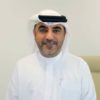
Hussain Mohammed Al Mahmoudi
American University of Sharjah Enterprises
CEO
Hussain serves a dual role as the Chief Executive Officer (CEO) of the American University of Sharjah Enterprises (AUSE) and as the CEO of the Sharjah Research, Technology and Innovation Park
(SRTIP). Both these entities were established through royal decree by the Ruler of Sharjah, who also directly appointed Hussain to these responsibilities in order to create collaborative long-term relationships between industry, academia and the public sector, fostering an ecosystem of enterprise and innovation.
Previously, Hussain served as the Director General of the Sharjah Chamber of Commerce and Industry, a Member of the UAE Chamber Federation, and GCC Chambers for 8 years. He was responsible for the overall management and operations of the Chamber including the provision of services to its members. In this role, he launched several strategic economic initiatives for Sharjah such as the SME Act, Sharjah Export Centre, Sharjah Commercial Arbitration Centre, and the Sharjah Business Forum.
Hussain has held leadership roles at leading regional and international companies such as the Royal Dutch Shell Group, Emirates National Oil Company (ENOC), and several Dubai Holding entities. He currently serves as honorary board member of both, the Tatweer Forum and of Maastricht University in the Netherlands, and as chairman of the Emirates Business Council for Sustainable Development. He also serves as a board member of the Sharjah Entrepreneurship Center (Sheraa). Hussain possesses an MBA from the American University of Sharjah and a BA in Economics and Communications from Seattle Pacific University in the US.
The G-STIC conference at Expo 2020
During this roundtable, panellists will explore the topics that could be addressed during the fifth edition of the G-STIC conference at Expo 2020 in Dubai.

Philip Heylen
Ackermans & van Haaren
Business Development Manager, Board Director, Port of Duqm (Oman)

Kris Van Nijen
Global Sea Mineral Resources
Managing Director
Kris has spent the last 20 years overseeing marine engineering projects across continents, and has a track record of successfully balancing economic, environmental and social considerations for sustainable growth. Today, he heads a team developing ultra-deep ocean technologies, focused on recovering critical metals needed for sustainable development and ultimately for the future benefit of humankind. Kris is an active participant and presenter in meetings with regional (EU) and international (UN) intergovernmental bodies charged with regulating the marine minerals sector and has been quoted in the Economist, Time Magazine, Financial Times and Nature. Kris has a PhD in applied economics from the University of Antwerp and an MBA from the Vlerick Business School.
Climate change, population growth and biodiversity loss. These are some of the major challenges the world faces in the years ahead. Metals like cobalt and nickel, essential to address these needs, are becoming increasingly difficult to access, or even scarce, on land. But significant amounts of these metals can be found in polymetallic nodules, deep beneath the Pacific Ocean. Building on its world-renowned expertise in marine technology, DEME has established an in-house, deep-sea exploration and exploitation specialist: Global Sea Mineral Resources (GSR). Using Best Available Techniques (BAT) and the highest scientific standards, GSR aims to be a global leader in the responsible exploration and exploitation of polymetallic nodules, contributing to the sustainable development of the planet.

H.E. Per Sjaastad
European Union
Ambassador of Norway to the Kingdom of Belgium, Deputy Head of Norway's Mission

Leen Govaerts
VITO Energyville
Unit Manager, Smart Energy and Built Environment
Leen Govaerts holds a Master degree in Business Engineering and an Executive MBA. She started her career as a researcher in the field of low carbon mobility at the VITO research institute on sustainable development. At present she is leading the research unit Smart Energy and Built Environment of VITO Energyville dealing with sustainable energy and urban sustainability. Key research areas are long term energy strategies and policy, energy district design and sustainable building concepts with living labs being a central concept in the research approach.
Leen Govaerts is a member of the Energyville executive committee, a research association of 400 researchers on sustainable energy and cities between VITO, KULeuven, imec and university Hasselt. She is the chairperson of BERA – Belgian Energy Research Alliance – and a member of the Executive Committee of EERA, the European Energy Research Alliance. She is involved in several international networks and has experience in coordinating several European research consortia. She is a recognized expert on behalf of the Flemish Government to evaluate energy and sustainability aspects for renewal of urban districts.
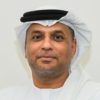
Khaled Al Hashmi
The National Space Science and Technology Center
Director
Leading the National Space Science and Technology Centre, developing and establishing manufacturing facilities and capabilities in design and build of satellites and R&D program in space science and technologies. Previously, spearheaded development and implementation of the Space Science & Technology and Innovation roadmap, the national space program for the UAE Space Agency inclusive of the program management of the UAE Mars Mission “The Hope” project, other small satellite projects and currently the 813 Arabic Satellite.
Held several roles in senior executive management positions that demanding critical business transformation as Chief Operating Officer, Executive Director, and Director at various Space, Aerospace, Oil & Gas industries, government administration and state-owned enterprises in areas of Strategy, Business Planning, Organization Development, and Operations.
Earned a Doctorate in Business Administration and an MSc in Thermal Power & Fluids Engineering from the University of Manchester, graduated from Harvard Business School–General Management, earned a Diploma in Public Sector Innovation from University of Cambridge. His first Degree was a BSc in Aerospace Engineering from Saint Louise University.

Francesca Vanthielen
Moderator
Closing remarks about the G-STIC conference at Expo 2020

H.E. Reem Ebrahim Al Hashimy
United Arab Emirates
Minister of State for international cooperation, Managing Director of Expo 2020
In February 2016, Her Excellency Reem Al Hashimy was sworn in as Minister of State for International Cooperation, in the UAE’s Ministry of Foreign Affairs and International Cooperation. Additionally, she holds responsibility within the Cabinet for the UAE’s bilateral relations with Sub Saharan African countries.
Since her first ministerial appointment in February 2008, Her Excellency has managed and continues to manage the Vice President’s Office for Political Affairs, His Highness Sheikh Mohammed Bin Rashid Al Maktoum.
In November 2013, as Managing Director of Dubai’s World Expo 2020 bid, HE Reem oversaw a historic success at the Bureau International des Expositions. Dubai Expo 2020 will be the first held in the MEASA (Middle East, Africa and South Asia region). Her Excellency holds the position of Managing Director of the Dubai Expo 2020 Higher Committee as well as Director-General of the Dubai Expo 2020 Bureau, in preparation for the upcoming national milestone.
Since its launch in 2007 by His Highness Sheikh Mohammed Bin Rashid Al Maktoum, Her Excellency has served as Chairperson of Dubai Cares, a philanthropic organisation with the aim of improving access to quality education in developing countries.
Her Excellency was formerly Chairperson of the Federal Competitiveness and Statistics Authority, which drives the UAE’s global competitiveness across many sectors.
Her Excellency completed her undergraduate degree at Tufts University, earning a BA in International Relations and French, followed by an MA from Harvard University. Prior to her current position as Minister of State, Her Excellency served as Commercial Attaché, and subsequently Deputy Chief, of the UAE Embassy to the United States of America, in Washington DC.
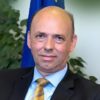
H.E. Peter Claes
Embassy of Belgium in the United Arab Emirates
Ambassador

Ibrahim Hafeezur Rehman
VITO Arabia Science and Technology
CEO
Ibrahim Hafeezur Rehman is presently Director of India Operations of VITO and also CEO – VITO Arabia Science and Technology LLC, Dubai. VITO is an independent Flemish (Belgian) research organization in the area of clean technology and sustainable development.
With a Master in Organic Chemistry; specialization program in Environment Management from University of Manchester; and a Doctorate from University of Utrecht; Dr Rehman has over 30 years experience in the field of sustainable development in general and water and energy management in particular.
Rehman has led a large number of research and implementation projects in India and across number of other countries in the field of energy, water and environment. Rehman has served on various National and International Committees and Boards of Government/Multi-lateral organizations/Corporates. He has worked in different countries such as India, Belgium, UAE, and Thailand and led a large number of transformative Projects and Campaigns in India, Africa, South East Asia, etc. He is also a co-author of several books and has written a number scientific (and policy) papers/articles in reputed journals (including Nature) and magazines.
Water
Plenary session
Round Table: cooperation towards resilient water systems
27/10/2020, 10:00 - 11:15
Resilient water systems should be firm, shock-resistant and flexible. Resilience and flexibility are essential characteristics of any water system that needs to cope with highly fluctuating circumstances. Every water user must be able to adapt to the new reality of heavy rainfalls and long periods of drought, and our cities and regions must also remain livable in this new reality.
Flexible water systems must therefore be built that make maximum use of the available water resources for all possible applications and uses. Given the highly complex interactions within the water system itself and with external systems for energy, food or mobility, one thing is sure: we will have to take a strong focus on cooperation. Cooperation is not just required to develop and finance innovative water solutions. It is also crucial for the implementation of such solutions at scale and the related follow-up.
Keynote speech: cooperation towards resilient water systems

H.E. Zuhal Demir
Flemish government
Flemish Minister of environment
Panel discussion: cooperation towards resilient water systems

Luc Vandenbulcke
DEME
CEO

Jacob Bossaer
Bosaq
CEO

Jan Goossens
Aquafin
CEO
Since the end of 2016, Jan Goossens has been the CEO of Aquafin. This company employs over 1000 dedicated employees and operates more than 300 wastewater treatment units throughout Flanders. Aquafin also manages and finances the continued expansion of the sewer infrastructure and water treatment capacity on behalf of the Flemish Region. Backed by in-house research, the company is also diversifying towards large-scale energy, heat and nutrient recovery from wastewater. Developing integrated stormwater plans for municipalities countering the increasing effects of climate change, such as drought and flooding, is one of Aquafin’s other key activities.
With a PhD in analytical chemistry as educational background, Jan Goossens started his professional career at the chemical company BASF holding several management positions in HR, sales and operations. He was involved with both plastic (nylon) and fertilizer businesses.
Before becoming Aquafin’s CEO, Jan held the position of Managing Director at Marpobel, an industrial water treatment facility in the Port of Antwerp. Next, he was appointed Managing Director at Industrial Services, a Dutch maintenance provider to the Chemical, Energy and Offshore Industry. During 15 years, Jan has also been a guest professor at Ghent University where he still serves as a guest lecturer on water management.

George Brik
Hydrovolta
CEO
George Brik is a co-founder and the CEO of Hydrovolta, a company specialised in water desalination. He has over 20 years of experience in sustainable & environmental entrepreneurship, with a special focus on blue economy, and improving efficiency and solving problems for the water treatment industry. George Brik is driven by a passion to improve and create eco-friendly and sustainable water treatment technologies to protect the future generations.
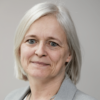
Inge Genné
VITO
Program manager WATER
Inge Genné is program manager Water at VITO (the Flemish Institute for Technological Research). Since 2016, she is heading a multidisciplinary team of experts (engineering, hydrology, monitoring, economics, data science) that addresses the economical and societal water challenges in an integrated way. VITO’s innovation strategy focusses on digital water, the value of water and the water/climate nexus. VITO develops tools and products and supports industry, public authorities and cities to evaluate sustainable water management concepts. VITO also hosts the Flanders Knowledge Center Water (Vlakwa) that enhances the formation of innovation partnerships and supports the Flemish water agenda by developing a systemic view on water.
Inge has a Ph.D. in chemistry (University of Leuven) and started her research career in the area of membrane technology. She then expanded her horizon to the broader water domain leading the teams on industrial water and separation technology. Inge is coördinating the WaterPROOF Flanders project, focused on the implementation of demosites to accelerate the Blue deal strategy of the Flemish Government.
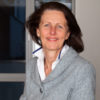
Diane D’Arras
IWA
President

Francesca Vanthielen
Moderator
Energy
Workshop
How SDG-proof is deep geothermal energy?
27/10/2020, 10:00 - 11:30
This workshop focuses on using the 17 SDGs as a sustainability assessment tool to evaluate – in a holistic way – the current technologies of deep geothermal energy production. Based on the ‘SDG Spider Web’, a methodology developed by CIFAL Flanders, the utilisation of deep geothermal energy production will be assessed in view of the 5 Ps of the 2030 Agenda: what is the potential positive and/or negative impact of deep geothermal energy on planet, people, prosperity, peace and partnerships?
Chaired by

Peter Wollaert
CIFAL Flanders - UNITAR
Managing Director CIFAL Flanders - UNITAR Fellow
Peter Wollaert (Belgium, °1968) is a social entrepreneur, trainer and SDG expert. He has been involved in development cooperation, sustainable development, business ethics, corporate social responsibility (CSR) and social business for almost 25 years. He combines theoretical knowledge with broad practical experience and likes to give himself free rein as a critical, engaged and impassioned speaker.
In 1998, he founded Extenz, a consultancy firm on stakeholder management. Between 2002 and 2011, he was the Managing Director of Kauri (now named The Shift), which became the largest network for corporate social responsibility in Belgium during his tenure. In 2004, Peter founded a cooperative and sustainable managed coworking space and conference centre in the heart of Brussels.
In 2012, Peter Wollaert became a lecturer in business ethics and corporate social responsibility at the Vlerick Business School. In 2013, he was appointed manager of the Vlerick Forum for Social Entrepreneurship.
Since March 2013, Peter is the managing director of CIFAL Flanders, a UNITAR affiliated International Training Centre for Authorities and Leaders that is part of the CIFAL Global Network 18 CIFALs across the globe. The focus of CIFAL Flanders is the implementation of Agenda 2030 for Sustainable Development in businesses.
In October 2013, Peter Wollaert was appointed UNITAR Fellow. In February 2018, he was elected chairman of the United Nations Association Flanders Belgium.
Plenary
Special session
Incentivising tech development to realize the Green Deal
27/10/2020, 08:30 - 09:45
This panel session will focus on how to ensure that the necessary technology advancement is made to realise the Green Deal. By encouraging technological innovation, the shift towards a sustainable society could be achieved in a way that we cannot immediately predict. Furthermore, innovation in technology is regarded as a critical condition to remain competitive at a global level.
Therefore, this panel encourages speakers to share their views on how we can make the right decisions to retain leadership on sustainable technology. What are the steps we need to take and how will we realise this shift with the (human) resources that we have? What are best practices to bridge the innovation gap and to allow new concepts to come to fruition in a conservative environment?
This session is hosted by the IEEE European Public Policy Committee and the KU Leuven.
Chaired by

Dirk Van Hertem
KU Leuven
Professor and Member of IEEE EPPC
The Leuven model of technology valorisation and innovation management

Koenraad Debackere
KU Leuven
General Manager Leuven Research and Development
Skills development needed for climate change

Pär Lundström
The Swedish Installation Federation
Representing CEDEFOP and EuropeOn
Promoting innovative energy system development

Alberto Pototschnig
Florence school of regulators
Part-time professor, former director of ACER
Alberto Pototschnig is part-time Professor and Deputy Director for the World of Practice at the Florence School of Regulation – European University Institute, where he has been teaching on energy regulation and market design since 2004.
From 2010 to 2019 he was the first Director of the European Agency for the Cooperation of Energy Regulators (ACER). Before joining the Agency, from 2006 Alberto was a Partner in Mercados EMI, a Madrid-based international consultancy specialising in the energy sector, where he served as CEO and Deputy Chairman. He previously worked at the Italian Transmission System Operators (from 2003 to 2005), served as the first CEO of the Italian Electricity Market Operator (from 2000 to 2003) and in the Italian Energy Regulatory Authority (AEEG, from 1997 to 2000), with his final position being Director of Electricity Regulation. Alberto started his professional career in 1989 with London Economics, an international economic consultancy, where he was eventually in charge of the industrial economic advisory practice. Between 2003 and 2005 Alberto also acted as an adviser to the Italian Government on environmental and climate policy issues.
Alberto holds a Degree in Economics from Bocconi University in Milan and an MSc in Econometrics and Mathematical Economics from the London School of Economics, University of London.
New ecosystems to co-create a consumer-centric system

David Zenner
Elia Group
David Zenner joined ELIA in 2003. Before his current position as a Head of Consumer Centricity, he was the responsible for all customer relations within Elia. He has a long experience in the operation and maintenance of the grid and was responsible for these activities in different areas of Belgium.
From 2008 to 2011, he also worked on different projects related to Protection & Control System for power grids in the Middle East.
He graduated in electromechanical engineering at Ghent University in 2002, and holds a Master of Electrical Engineering, Electromechanical Engineering from the Ecole Polytechnique Fédérale de Lausanne (EPFL).
Technology development and innovation towards a carbon-neutral world in a global utility

Michael Webber
Engie
Chief Science and Technology Officer
Panel discussion about tech development for the Green Deal

Koenraad Debackere
KU Leuven
General Manager Leuven Research and Development

Pär Lundström
The Swedish Installation Federation
Representing CEDEFOP and EuropeOn

Michael Webber
Engie
Chief Science and Technology Officer

Alberto Pototschnig
Florence school of regulators
Part-time professor, former director of ACER
Alberto Pototschnig is part-time Professor and Deputy Director for the World of Practice at the Florence School of Regulation – European University Institute, where he has been teaching on energy regulation and market design since 2004.
From 2010 to 2019 he was the first Director of the European Agency for the Cooperation of Energy Regulators (ACER). Before joining the Agency, from 2006 Alberto was a Partner in Mercados EMI, a Madrid-based international consultancy specialising in the energy sector, where he served as CEO and Deputy Chairman. He previously worked at the Italian Transmission System Operators (from 2003 to 2005), served as the first CEO of the Italian Electricity Market Operator (from 2000 to 2003) and in the Italian Energy Regulatory Authority (AEEG, from 1997 to 2000), with his final position being Director of Electricity Regulation. Alberto started his professional career in 1989 with London Economics, an international economic consultancy, where he was eventually in charge of the industrial economic advisory practice. Between 2003 and 2005 Alberto also acted as an adviser to the Italian Government on environmental and climate policy issues.
Alberto holds a Degree in Economics from Bocconi University in Milan and an MSc in Econometrics and Mathematical Economics from the London School of Economics, University of London.

David Zenner
Elia Group
David Zenner joined ELIA in 2003. Before his current position as a Head of Consumer Centricity, he was the responsible for all customer relations within Elia. He has a long experience in the operation and maintenance of the grid and was responsible for these activities in different areas of Belgium.
From 2008 to 2011, he also worked on different projects related to Protection & Control System for power grids in the Middle East.
He graduated in electromechanical engineering at Ghent University in 2002, and holds a Master of Electrical Engineering, Electromechanical Engineering from the Ecole Polytechnique Fédérale de Lausanne (EPFL).
Water
Deep dive session
Upscaling technological solutions for water supply systems
27/10/2020, 08:30 - 10:00
Improved water supply and sanitation services are a prerequisite to poverty reduction and sustainable economic growth. Although universal access to safe drinking water is considered a fundamental human right, still many countries lag in achieving the goal of providing safe drinking water for all. While adequate supply of drinking water with desired water quality has been a focus for countries, still many of them face significant challenges for efficient service delivery including high leakages/losses, inadequate per capita water supply, inequity in distribution, high non-revenue water (NRW), poor water quality, low metering & unsustainable financial mechanisms.
A considerable amount of these challenges can be addressed through a boost in technological solutions for e.g. advanced leak detection technologies, smart metering, ICT tools, AI based solutions, advanced water treatment & distribution network-based technologies/solutions, real-time water quality monitoring technologies etc. The key to achieving SDG targets on drinking water is to develop, mainstream and up-scale innovative technologies boosted by effective dissemination, financial investments, technology transfers & partnerships as well as conducive policy framework. This session will explore the role innovative technologies can play in improving the water supply service delivery at a large scale through enhanced collaboration and sustainable market mechanism.
Chaired by
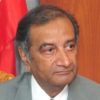
Ravi Narayanan
Asia Pacific Water Forum (APWF)
Chair
Ravi Narayanan is currently Chair of the Asia Pacific Water Forum whose secretariat is in Tokyo, Japan, International Mentor to the Japan Water Forum and Chair of the Water Integrity Network, Berlin. He was a member of the World Panel on Financing Water Infrastructure (the Camdessus Panel) and the UN Millennium Task Force on Water and Sanitation. He is a life member of the Norwegian Water Academy.
At the national level he was a member of the Technical Expert Group set up by the Government of India to assess its national drinking water mission and a member of the 12th Five Year Plan Working Group on Water and Sanitation. He is an Associate of the National Institute of Advanced Studies in India.
With degrees in Physics from Delhi University and Engineering from Cambridge University, Ravi began his career in the corporate sector as a design engineer with General Electric Company in the UK in 1966. Since then he held positions in production, marketing and general management in the manufacturing sector. In the not-for-profit sector, Ravi was Asia Director at ActionAid and then Chief Executive of WaterAid. UK. He was an advisor to the Arghyam Foundation which was set up in India to work on sustainable water and sanitation issues in India.
He was awarded an honorary CBE by the UK Government in 2009 for water and sanitation services to poor communities in Africa and South Asia.
Opening remarks: upscaling solutions for water supply systems

Ravi Narayanan
Asia Pacific Water Forum (APWF)
Chair
Ravi Narayanan is currently Chair of the Asia Pacific Water Forum whose secretariat is in Tokyo, Japan, International Mentor to the Japan Water Forum and Chair of the Water Integrity Network, Berlin. He was a member of the World Panel on Financing Water Infrastructure (the Camdessus Panel) and the UN Millennium Task Force on Water and Sanitation. He is a life member of the Norwegian Water Academy.
At the national level he was a member of the Technical Expert Group set up by the Government of India to assess its national drinking water mission and a member of the 12th Five Year Plan Working Group on Water and Sanitation. He is an Associate of the National Institute of Advanced Studies in India.
With degrees in Physics from Delhi University and Engineering from Cambridge University, Ravi began his career in the corporate sector as a design engineer with General Electric Company in the UK in 1966. Since then he held positions in production, marketing and general management in the manufacturing sector. In the not-for-profit sector, Ravi was Asia Director at ActionAid and then Chief Executive of WaterAid. UK. He was an advisor to the Arghyam Foundation which was set up in India to work on sustainable water and sanitation issues in India.
He was awarded an honorary CBE by the UK Government in 2009 for water and sanitation services to poor communities in Africa and South Asia.
Keynote speech by Ms. D. Thara
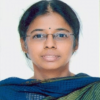
D. Thara
Ministry of Housing and Urban Affairs & National Mission Director (AMRUT) Govt. of India
Joint Secretary
D. Thara has been working as an IAS Officer since 1995. She has been working in the State of Gujarat since 1997 and has a versatile experience in various cities of Gujarat such as Ahmedabad, Kheda, Rajkot, Vadodara and Surendranagar in various Departments. She has worked as a District Development Officer in the cities of Vadodara and Surendranagar for a period of 2 years in Land Revenue Management and District Administration and Development Administration. She also has experience as a Collector in Land Revenue Management & District Administration Departments in the cities of Kheda for a period of 1 year and Ahmedabad for a period of 3 years.
D. Thara has also worked as the Deputy Municipal Commissioner of Ahmedabad Municipal Corporation for approximately 2 years. During this period, she has worked on a number of JNNURM Projects. She has been one of the pioneers of the BRTS Project which was a very essential project of the city. She has also initiated the Second Revised Draft Development Plan 2021 as Chief Executive Authority, Ahmedabad Urban Development Authority (AUDA) in 2008. During her tenure as Chief Executive Authority, AUDA, the Second Revised Draft Development Plan 2021, Ahmedabad was completed and also the First Revised Draft Development Plan of Gandhinagar as the CEA, GUDA was completed. With her focused vision and great leadership qualities, a number of new concepts and ideas were incorporated in the Second Revised Draft Development Plan 2021. Few of them included the Central Business District, Transit Oriented Zone and Residential Affordable Housing Zone and also the preparation of Local Area Plans for such projects. She has been the Chief Executive Authority of AUDA and Municipal Commissioner, Ahmedabad. During her tenure, Ahmedabad was made and executed as a Smart City. Water Management and Security was the focus area. 7.5 lac people were given surface water in one year. 4 STPs were initiated and sewage treatment gap is being completely addressed.
D. Thara was working as Vice Chairman & Managing Director, Gujarat Industrial Development Corporation, Gandhinagar since 24/06/2016. After that she had joined Ministry of Housing and Urban Affairs as Joint Secretary on 29/07/2019.
Leveraging technology for clean and sustainable water
Singapore is a densely populated island city-state, with 5.7 million people living on a land area of about 725 sq km. Although Singapore receives abundant rainfall, it is not able to collect and store all the rainwater with its limited size. Hence, Singapore is projected to be one of the most water-stressed countries in the world by 2040 (source: World Research Institute, 2015). Water will always be an existential priority for Singapore.
The mission of the Public Utilities Board (PUB) is to supply good water, reclaim used water and tame stormwater. Over the last 50 years, Singapore has built a robust and diversified supply of water known as the “Four National Taps” – water from local catchments, imported water from Malaysia, high-grade reclaimed water known as NEWater, and desalinated water. Tap water quality is well within World Health Organisation (WHO) drinking water guidelines and is suitable for drinking from the tap without any further filtration.

Tiing Liang Moh
Public Utilities Board (PUB), Singapore
Deputy Director (Technology Collaboration), Industry and Technology Collaboration Department
Moh Tiing Liang is a Deputy Director at the Industry & Technology Collaboration Department in PUB, Singapore’s National Water Agency. He currently oversees PUB’s technology collaboration efforts with the aim to grow technologies through partnerships with the industry and other stakeholders. In this role, he leads a team to commercialise water technologies that are co-developed by PUB. Before joining PUB, Tiing Liang served in the Singapore Armed Forces as an aeronautical engineer. Tiing Liang graduated in mechanical engineering from the National University of Singapore and obtained his EMBA from Rutgers University.
Oxidative and photochemical water treatment processes for sustainable urban water supply systems: abatement of organic contaminants and disinfection
Ozonation (O3 and O3/H2O2) and UV-based processes (UV and UV/H2O2) are increasingly applied in drinking water treatment for the purpose of disinfection and oxidation of micropollutants. These (photochemical) oxidation processes have also received increasing attention as a potential option for enhanced wastewater treatment to eliminate various micropollutants and emerging biological contaminants, in order to protect drinking water sources as well as aquatic ecosystem.
Recent advances in applications of ozonation and UV-based processes for drinking water and wastewater treatment are presented, including application history and status in Korea, in addition to selected research activities on principle-based approaches for describing and modelling the contaminant elimination efficiency in these advanced water treatment processes.

Yunho Lee
Gwangju Institute of Science & Technology
Professor Environmental Science and Engineering
Yunho Lee is a full professor at the School of Earth Sciences and Environmental Engineering at the Gwangju Institute of Science and Technology (GIST), Korea. He received a PhD from the Chemical Engineering Department at Seoul National University, Korea in 2005 and did a postdoctoral research at the Swiss Federal Institute of Aquatic Science and Technology (Eawag) before joining GIST in 2011.
His research focuses on characterising and optimising oxidative water treatment processes for drinking water and municipal and aquaculture wastewater for abating organic and biological contaminants of concern with minimized toxic by-product formation. He uses principle-based approaches for his research, such as chemical kinetics and mechanisms, which are also combined with analytical, toxicological, microbiological, and process engineering aspects.
Yunho Lee has authored more than 70 papers in the field of water science and engineering. He has been serving as the editor of Journal of Environmental Chemical Engineering (Elsevier) since 2013 and advisory board member of Environmental Science and Technology Letter (ACS) since 2016.
Digital transformation needs for efficient water management
Jeroen van der Sommen will discuss the digital transformation needs for efficient water management. He will share the innovation on digitalisation and automation for integrated real-time water quality monitoring as the basis of an efficient decision-making tool for improving water use efficiency. Amongst others, he will present the innovative Akvo Caddisfly technology and its potential widescale application benefits.

Jeroen van der Sommen
Akvo
Director
Jeroen van der Sommen is the co-founder and Managing Director of Akvo, an organisation seeking to revamp and disrupt development aid through data and digitalisation. Jeroen started his career as a hydrogeologist in Burkina Faso in 1982 and holds an MSc in Hydrology from Vrije Universiteit Amsterdam. Throughout the 1980s, he worked and lived in Burkina Faso, Mozambique, Niger, Mali, Indonesia and India, managing water supply and management projects on behalf of organisations such as the World Bank and the European Union. In 1998, Jeroen founded the Netherlands Water Partnership, where he built a dynamic network of over 200 member organisations. Today, Jeroen is the driving force behind Akvo’s strategy in West Africa.
Sustainable drinking water supply and capacity development of rural communities in Cambodia and Indonesia
Facility/Programme for Capacity Development for Poverty Reduction through South-South Triangular Cooperation in Science and Technology (the Republic of Korea (RoK) and United Nations Office for South-South corporation (UNOSSC) Facility) – Phase 2 was initiated in 2016 with the aim to share the RoK’s development experience and know-how in science and technology with developing countries. Our contribution to this programme is providing a drinking water treatment system with a gravity-driven membrane (GDM) to rural communities in Cambodia and Indonesia. As a sustainable technology for providing drinking water to village schools, it has several advantages including no external energy requirement, minimal maintenance, effective filtration against bacteria and protozoa, compact and easy operation, and long lifetime. Current efforts are underway to complete the installation of the drinking water filtration systems in rural schools both in Srey Santhor, Cambodia and Sukabumi, Indonesia. Healthy school programs are also being coordinated with other facility partners by providing safe drinking water and other studies which impact the public health of the students at these rural schools.

Chun Youngpil
International Environmental Research Institute (IERI)
Senior Researcher
Youngpil Chun joined the International Environmental Research Institute (IERI), Gwangju Institute of Science and Technology (GIST) in 2019, after earning his PhD in environmental engineering from the University of South Australia (UniSA, 2016). He subsequently trained as a postdoctoral researcher in the Singapore Membrane Technology Centre (SMTC), Nanyang Technological University (NTU, 2016-2019). For the last decade, a major focus of his work has been the identification and characterisation of membrane fouling during water purification processes. Since joined the IERI, he has been focusing on deployment of the gravity-driven membrane (GDM) process as a decentralised drinking water treatment technology in developing countries with a particular focus on rural communities.
Efficient service delivery for 24/7 water supply in India
Sanjoy Roy will present the critical factors and management approach that are vital for efficient service delivery through example of project implementation of 24×7 water supply in an Indian city that brought about significant reduction of NRW (non-revenue water), efficient water delivery, reduced losses and increase in revenue of the water supply utility.
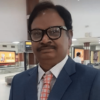
Sanjoy Roy
Orange City Water (OCW)
Chief Executive Officer
A visionary Civil Engineer & Master of Business Administration (Fin), Mr Sanjoy Roy is responsible for the day-to-day Technical progress of OCW’s ambitious ongoing 24×7 water supply project in Nagpur. He is a techno – commercial leader, having 30+ years of experience in Infrastructure industry of which more than 7+ years at the CXO level, who have brought revolutionary changes in water supply system of Nagpur.
OCW has seen new highs of success in his leadership. While delivering his best services as the CEO of OCW, the foremost target that he has geared up to achieve is the equitable water distribution to Nagpur and to reduce the Non-Revenue Water in Nagpur to the set service level benchmarks.
Under his leadership OCW has added several coloured feathers in its cap by receiving the National Gold Award as Most Progressive Water Utility in India, the 2018 Best Water Management Practices Award-2017 and the Best PPP Operator Award by The Water Digest-2017.
Further achievements of OCW under his leadership include
• awarded by Prime Minister for best practiced PPP project in Nagpur in 2016 during launching of AMRUT in New Delhi.
• received Sustainable Leadership award in Parivartan 2016 in New Delhi
• awarded as Gold winner in 2018 at India Smart Grid Forum (a PPP initiative of Government of India) for Most Progressive Water Utility in India
Q&A – Upscaling technological solutions for water supply systems
Energy
Deep dive session
Geothermal energy in district energy systems
27/10/2020, 08:30 - 09:45
Shallow geothermal systems, hydrothermal processes and hot dry rock provide clean, abundant, and reliable sources of energy, even if unevenly distributed. The integration of such geothermal resources into district energy systems opens up possibilities to build an energy supply chain that meets the electricity, heating, and cooling needs in urban areas. Appropriate energy system development strategies, policies and planning along with technology innovation and commercialisation incentives are essential to realising energy supply chains that are stable, economically feasible, sustainable and secure.
Chaired by
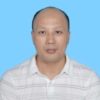
Fangming Jiang
Guangzhou Institute of Energy Conversion, Chinese Academy of Sciences
Director of Advanced Energy Systems Group
Fangming Jiang is a full professor at Guangzhou Institute of Energy Conversion (GIEC) of the Chinese Academy of Sciences (CAS). He founded the Laboratory of Advanced Energy Systems and has been serving as the director of this laboratory since 2011. Fangming Jiang got his PhD degree from the CAS Institute of Engineering Thermophysics in 2001, and MSc a&nd BE degrees from Chongqing University in 1998 and 1995, respectively. During 2002-2011, he worked successively at IMM-GmbH (Germany), the University of Aveiro (Portugal), and the Pennsylvania State University (USA).
Dr Jiang has authored two books, six book chapters and more than 150 peer-reviewed journal articles. He holds 15 China invention patents and copyrights on 29 computational programs. Dr Jiang is active in research areas such as fuel-cell and Li-ion battery science and technology, thermofluidics, geothermal energy exploitation, and CFD. He has contributions in more than 100 academic conferences, including 10+ keynote/plenary lectures.
Geothermal energy in district energy systems: the cheapest heat source in Europe?
Geothermal district heating, where the geothermal resource is connected to a heat network, is an ongoing European success story, with a rate at which new capacity is installed that is increasing every year. The first regions to install geothermal district heating were those with the best hydrothermal potential, but today, with new technologies and systems, an increasing number of regions are turning to it. Its potential is significant and clear, but a level playing field in the heating sector, with well-established and transparent support schemes, must be put in place to reap the full benefits of the latest technological developments. Other heat applications include desalination, growing plants in greenhouses, drying crops, snow-melting, and several industrial processes.
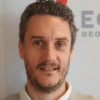
Philippe Dumas
European Geothermal Energy Council
Secretary General
Since September 2008, Philippe Dumas is the Secretary General of the European Geothermal Energy Council (EGEC), an international association founded in May 1998 and based in Brussels, Belgium.
EGEC unites more than 120 European companies and organisations working in the geothermal field and represents 500+ entities from 22 European countries.
The main goal of EGEC is to foster market development for geothermal energy and to work for the improvement of business conditions in Europe.
Rethinking co-generation for a sustainable future
To address climate change, much more is required than switching to environmentally compatible means of transport or installing PVs. What is called for is a combination of different measures addressing the needs of the society. Local communities, in particular, have different needs which can be addressed by consulting the stakeholders and developing appropriate solutions.
Co-generation of heat, electricity, and water using different sources of renewable energy can make a difference. As a case study in Australia illustrates, it is possible to design such systems that lead to affordable products.
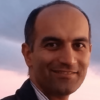
Kamel Hooman
University of Queensland
Director of Geothermal Energy Center
On top of his full-time appointment at the University of Queensland, Kamel Hooman has contributed to teaching and research at different universities in Italy, Poland, China, and Malaysia as a visiting professor. In his editorial role, he assists the International Journal of Heat and Mass Transfer as well as the Heat Exchanger Design Handbook to close the gap between theory and practice. Kamel works closely with the industry, in Australia and overseas, to develop technologies for renewable energy and a sustainable future.
Kamel Hooman is the recipient of many awards and fellowships attesting to his national and international recognition. He was named Australia’s Research Field Leader in Thermal Sciences. He has been the QGECE Director and along with his team significantly contributed to the advancement and demonstration of renewable energy technologies in Australia.
Earth-deep GeothermaI Heat Extraction by Super-Long Heat Pipe
A heat pipe is capable of transferring heat very effectively from its high to its low temperature end, relying on the working fluid phase transitions. Using a super-long gravity-assisted heat pipe to exploit earth-deep geothermal energy, the heat pipe is used essentially as a downhole heat exchanger (DHE). However, compared with the conventional DHEs like the U-tube or coaxial tube DHEs, the heat pipe DHE has the advantage of not requiring external pumping power. It can also enhance the heat transfer rate due to very high phase change (of working fluid) heat transfer coefficients. Moreover, the heat pipe system is able to maintain a higher temperature difference between the working fluid and the reservoir, which will promote the fluid natural convection in the reservoir and certainly lead to an increased heat extraction rate. For hot dry rock geothermal energy exploitation, the super-long heat pipe system circumvents the technical difficulties such as fluid loss, corrosion and scaling, and downhole interconnection between wells that are encountered in Enhanced Geothermal System (EGS).
Aiming at developing a super-long heat pipe that can be used for earth-deep geothermal heat extraction, numerical simulations, laboratory tests, and field tests have been conducted in recent years:
- numerical modelling of the super-long heat pipe heat extraction process to study the effects of heat pipe geometric design, operation parameters, and working fluid as well as the local geothermal geological conditions;
- experiments with an extra-long heat pipe (40 m in length, 7 mm in diameter) mimicking the main geometric characteristic (i.e. very large length-to-diameter ratio) of the real super-long heat pipes, to study and correlate the heat transfer performance of the heat pipe with the multiphase flow regime inside;
- a field test to design and manufacture a 3000 m long heat pipe, and successfully install it in a hot dry rock geothermal well.

Fangming Jiang
Guangzhou Institute of Energy Conversion, Chinese Academy of Sciences
Director of Advanced Energy Systems Group
Fangming Jiang is a full professor at Guangzhou Institute of Energy Conversion (GIEC) of the Chinese Academy of Sciences (CAS). He founded the Laboratory of Advanced Energy Systems and has been serving as the director of this laboratory since 2011. Fangming Jiang got his PhD degree from the CAS Institute of Engineering Thermophysics in 2001, and MSc a&nd BE degrees from Chongqing University in 1998 and 1995, respectively. During 2002-2011, he worked successively at IMM-GmbH (Germany), the University of Aveiro (Portugal), and the Pennsylvania State University (USA).
Dr Jiang has authored two books, six book chapters and more than 150 peer-reviewed journal articles. He holds 15 China invention patents and copyrights on 29 computational programs. Dr Jiang is active in research areas such as fuel-cell and Li-ion battery science and technology, thermofluidics, geothermal energy exploitation, and CFD. He has contributions in more than 100 academic conferences, including 10+ keynote/plenary lectures.
Towards a credible low-carbon energy transition with geothermal energy
The energy and environmental transition is underway and will not be easy to achieve. For years, geothermal energy has often been considered a “technical process in itself”, often disconnected from the context in which it is developing. The territory is a key element of this transition in its capacity to pool, federate, provoke synergies. The larger the scale of the energy demand, the easier it is to exceed critical masses, the more diverse the demand mix, the more relevant the possibilities of recovering fatal heat. The building-centred approach is broadening and offers major advantages for high-level energy and carbon efficiency. The cold and heat needs can be simultaneous due to the diversity of uses, the storage needs are relevant to recover fatal heat, the concepts of phase shift / damping produce their maximum effect, the winter / summer effects become productive. Geothermal energy, with its aptitudes to produce cold and heat, to exploit fatal heat, to store, smooth, phase out and dampen becomes relevant. But there again, it is not desirable to stop at “systems” without integrating it more deeply into the project: A high-quality thermal envelope will allow “lower energy levels”, to be able to provide comfort. winter with not very hot water and cooling with not very cold water: A global vision which allows the system to achieve exceptional yields and go beyond the “machine” by integrating the territory, by interconnecting networks and by developing high-quality thermal envelopes: a more integrated response, less “techno”, more credible.

Bruno Georges
OTEIS, France
Director of Major Projects Development and Director of Innovation
Bruno GEORGES created and managed ITF, HVAC & Environment Engineering for 30 years. In 2016, he joined Oteis, an independent engineering group (building, water and infrastructure) of nearly 500 people. Oteis has a turnover of 50M € / year and has 20 agencies located in France. As the Director of Major Projects Development and the Director of Innovation at Oteis, Bruno Georges active co-design with architects and engineering on major projects. It develops OteisLab, RDI pole of Oteis on Research, Development, external oxygenation and Integrated Innovation programs on projects. Its commitment places Oteis at the forefront of Green and Digital engineering : Shared work and collective intelligence. Energy, carbon issues, circular economy, gray energy are at the heart of the actions.
UTES thermodynamics and its application for RHC
Underground Thermal Energy Storage(UTES) plays the key role for future renewable heating and cooling. UTES includes Aquifer Thermal Energy Storage( ATES), Borehole Thermal Energy Storage(BTES), Carbon Capture and Storage(CCS), Cavern Thermal Energy Storage(CTES),Tank Thermal Energy Storage(TTES) and so on.ATES originated in China in early 1960s. It applies for industrial cooling in Shanghai. ATES has been in the Netherlands for 30 years. Currently, We have also conducted large-scale research and application in China, which can be applied in different geological conditions. We also have an upgraded version of ground-source heat pump technology —BTES, which can achieve cold and hot partitions. At present, BTES has also been achieved large-scale applications in China, and at the same time, we have achieved thermal simulation of pipe groups.
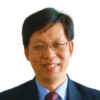
Wu Xiaobo
CEEC GEOTHERMAL CO.,LTD, China
Technical Director
Wu Xiaobo, PhD, graduated from the Department of Engineering Thermophysics of Tsinghua University, is currently the technical director of CEEC Geothermal Co., LTD. His field of work is the research and industrialisation of geothermal energy development technologies. As the project leader, he takes the lead and participated in many research projects on the key technology research and the application of CEEC’s major special geothermal energy efficient development and utilisation. He has published numerous articles in the world Geothermal Congress, HVAC and other journals, and holds a number of underground energy storage technology inventions and utility model patents.
Wu Xiaobo has rich experience in the development and construction of geothermal energy core hot and cold renewable energy stations. He participated in and took charge of many renewable energy station construction projects at home and abroad. These include the Japan Mitsubishi Heavy Industries’ aquifer energy storage project, the Shanghai Chongming Island National Facility Agriculture Center aquifer energy storage project, the Shanghai Flower Port Aquifer energy storage project, the Shandong Heze German Vocational Education Center renewable energy project, and the Xiangyang Renewable energy project in Hubei.
Q&A – geothermal technology in district energy systems

Fangming Jiang
Guangzhou Institute of Energy Conversion, Chinese Academy of Sciences
Director of Advanced Energy Systems Group
Fangming Jiang is a full professor at Guangzhou Institute of Energy Conversion (GIEC) of the Chinese Academy of Sciences (CAS). He founded the Laboratory of Advanced Energy Systems and has been serving as the director of this laboratory since 2011. Fangming Jiang got his PhD degree from the CAS Institute of Engineering Thermophysics in 2001, and MSc a&nd BE degrees from Chongqing University in 1998 and 1995, respectively. During 2002-2011, he worked successively at IMM-GmbH (Germany), the University of Aveiro (Portugal), and the Pennsylvania State University (USA).
Dr Jiang has authored two books, six book chapters and more than 150 peer-reviewed journal articles. He holds 15 China invention patents and copyrights on 29 computational programs. Dr Jiang is active in research areas such as fuel-cell and Li-ion battery science and technology, thermofluidics, geothermal energy exploitation, and CFD. He has contributions in more than 100 academic conferences, including 10+ keynote/plenary lectures.
Plenary
Special session
Fostering job creation by social entrepreneurs in Africa
27/10/2020, 13:30 - 15:00
As a non-profit foundation, Siemens Stiftung promotes sustainable social development, which is crucially dependent on access to basic services, high-quality education, and an understanding of culture. To this effect, the Foundation’s project work supports people in taking the initiative to responsibly address current challenges. Together with its partners, Siemens Stiftung develops and implements solutions and programs to support this effort, with technological and social innovation playing a central role.
The foundation’s empowering people. Network connects inventors and entrepreneurs who have developed simple technical solutions and helps to expand their social impact in developing regions. By initiating new forms of collaboration, technology transfer, and access to finance, it supports its members on their way to scale, replicate and expand. Currently the empowering people. Network connects around 60 organisations from around the world, start-ups and smaller businesses using straightforward technology to improve basic services for people in developing regions while creating employment and economic prosperity.
Through roundtables, studies and reports, the foundation aims to raise awareness about the impact potential of social tech entrepreneurs and their specific support needs. In their recent study Social Entrepreneurs Create Jobs in Africa, the social entrepreneurs’ potential to contribute to employment and income generation in African countries has been analysed. Based on the assessment Siemens Stiftung formulated recommendations that address the international development community.
Key findings of the study “Social Enterprises create jobs in Africa”
Siemens Stiftung conducted a study in 12 selected countries on the African continent with the distinct objective to assess and quantify the potential of social enterprises to contribute to improved social and economic conditions through the creation of jobs and income opportunities. The study has been funded by GIZ and is part of the “Invest for Jobs Initiative – Opportunities for Growth in Africa” that has been launched by the German Federal Ministry of Economic Cooperation and Development. The assessment comprises country-specific profiles, deep dives in case studies of five selected social enterprises as well as deducted growth support models and a comprehensive set of recommendations towards actors from different fields of the international development ecosystem.

Carola Schwank
Siemens Stiftung
Development Cooperation / epNetwork Lead
Carola Schwank leads the empowering people. Network programme (EPN) within the Development Cooperation Unit at Siemens Stiftung/Munich. She is in charge of the international Network initiative including the global competition “empowering people. Award”. Focusing on entrepreneurial models of basic supply in Sub-Saharan Africa, she has also been in charge of a cooperation project which combines basic supply, job creation and knowledge transfer. Carola studied German, history, political science and sociology at Friedrich-Alexander University of Erlangen-Nuremberg and has over twenty years of professional experience in various fields of communications and social responsibility at the Siemens AG.
How to foster job creation by social entrepreneurs in Africa
The panel discussion will reflect on selected recommendations of the study and discuss possible ways and processes to implement them on an operational level. In breakout sessions, the panellists will work with participants to develop initial approaches on how the proposals from the study could be applied on an operational level to help social enterprises grow and create more and better jobs in African countries.

Iana Aranda
ASME- Engineering for Change
President
Iana Aranda is the Director of the Engineering for Global Development Department at the American Society of Mechanical Engineers (ASME) where she sets the business strategy of a portfolio of programmes and platforms that advance knowledge, workforce and hardware-led social innovation to improve the quality of life of underserved communities. Iana also serves as the President of Engineering for Change, LLC (E4C) – a knowledge organisation and global community of over 1 million individuals dedicated to design and delivery of essential technologies advancing sustainable development. In both roles, Iana is driving an agenda for a multidisciplinary and human-centred approach to international development enabled by technology, cross-sector partnerships, innovation ecosystems and engineering workforce development. Iana has 15 years of experience in academic, research and non-profit sectors focusing on the intersection of engineering design, business strategy and social impact.

Dino Corell
UN ILO
Employment and Migration Officer, Office for Nigeria, Ghana, Liberia, Sierra Leone and ECOWAS
Dino Corell is an Employment and Migration Officer in the Country Office of the International Labour Organization (ILO) for Nigeria, Ghana, Liberia, Sierra Leone and ECOWAS, based in Abuja, Nigeria. He focusses on employment, youth employment, skills development and labour migration. Prior to that, Dino served as Programme Analyst in the ILO Office for the United Nations in New York. Before joining the ILO, he worked for the United Nations Office on Drugs and Crime (UNODC) and the University of Vienna.

Aissata Sow
Mastercard Foundation
Country Programs Lead Nigeria & Digital Economy Lead, West/Central Africa
Aissata Sow began her career in international development upon graduating with a Bachelor’s degree in Management from the Dakar Institut Supérieur de Management. She embarked on her 15-year long career by managing the Gorée Institute in Senegal, swiftly thereafter joining the George Soros Open Society Foundation as a Permanent Consultant. Furthering her education at the University of London, Aissa obtained her Masters degree in Science of International Development, propelling her to a new position as Chief of Operations for the African Virtual University. In 2012 Aissa joined Intel Corporation, covering Francophone Africa as Director for Public Sector and Education.
In March 2019, Aissa was hired by the Mastercard Foundation in Toronto where she is leading the Digital Economy Programs for West and Central Africa and also managing Nigeria Country programs. Extremely driven and passionate, Aissa strongly believes in transforming the African continent into what it should be: a welcoming, thriving and enjoyable place where every citizen plays a productive role in improving their own lives and the lives of future generations.

Leonhard Nima
Studio Nima
Founder and CEO
Leonhard Nima is the Founder of Studio Nima, Co-Founder of N3XTCODER and former Adjunct Professor of Social Entrepreneurship at Hult International Business School in San Francisco and London. He previously worked for Nobel Peace Prize Laureate Professor Muhammad Yunus at The Grameen Creative Lab as Head of Academia. With international corporate and consulting experience, he has worked with multinational companies and global organizations such as Accenture and Avantgarde. He has been a speaker and moderator at international conferences such as the Global Social Business Summit in Malaysia, Mexico, France and Germany, the European Social Business Forum in Norway and the Netherlands, the BMW Group rad°hub in the UK, United States and Germany, One Young World in Switzerland or TEDxSocial Business in Austria. Leonhard Nima held guest lectures at the University of Mannheim, Germany and the Istituto Europeo di Design in Milan, Italy.

Frank Aswani
African Venture Philanthropy Alliance (AVPA)
CEO
Frank Aswani is the CEO of Africa Venture Philanthropy Alliance (AVPA), a network of social investors who collaborate to increase the flow of capital into social investors across Africa and ensure that the capital is deployed for maximum social Impact. He is Kenyan, lives in Johannesburg and holds a Veterinary Medicine degree from the University of Nairobi and an MBA from GIBS (Gordon Institute of Business Studies), University of Pretoria, South Africa.

Maryanne Ocholo
Aspen Network of Development Entrepreneurs
Senior Regional Chapter Manager, East Africa
Maryanne Ocholo is an Impact Investment professional with experience working across several African markets in the small and growing business ecosystem. She previously worked at Barclays Bank of Kenya in operations, administration and turnaround management of an SME portfolio in distress. Maryanne is a trained financial journalist passionate about fuelling economic growth in Africa through data-driven journalism. She is happiest making connections, introductions and brainstorming ways of making entrepreneurs in East Africa overcome barriers to success. Maryanne holds an MBA from IE Business School.

Michaela Pawliczek
Deutsche Gesellschaft für Internationale Zusammenarbeit
Private Sector Cooperation, Economic and Social Development
For the past twenty years, Michaela Pawliczek has gained experiences in consulting, coaching and training for the international community, impact investors and the private sector in Europe and Africa. During this time, she covered topics as SME development, green economy/jobs, biodiversity, climate change and woman empowerment. In 2014, she was the principal founder and Executive Secretary of “ADDEV Madagascar” (Agir pour le développement durable et l’économie verte à Madagascar), the first association in Madagascar boosting the number of green jobs on the Big Island while promoting CSR amongst the Malagasy private sector.
Currently, Michaela is working for GIZ headquarters in Frankfort, Germany, as a project manager at “Invest for Jobs”, a Special Initiative on Training and Job Creation from the German Government. In this innovative programme she is focusing on green jobs, social entrepreneurship and CSR. Recently, she accompanied the foundation of the association “Circular Economy 4 Africa”, bringing together more than 50 stakeholders from Europe and Africa with the aim to promote and strengthen the value chains for circular economy in six African countries.
Energy
Deep dive session
Increasing the sustainability of energy storage
27/10/2020, 11:00 - 13:00
The electrification of transport and the buffering of fluctuating electricity production in the grid are crucial elements of a low-carbon economy. That increases the need for batteries for mobile and stationary energy storage, which in turn requires approaches to extend battery cells’ sustainability. Life cycle assessment provides a tool to minimise the environmental footprint from production to end of life. Increasing the durability of batteries to extend their life cycle triggers opportunities to achieve a more circular value chain. Finally, batteries should provide a more efficient way to include renewables in the energy mix.
Chaired by

Leen Govaerts
VITO Energyville
Unit Manager, Smart Energy and Built Environment
Leen Govaerts holds a Master degree in Business Engineering and an Executive MBA. She started her career as a researcher in the field of low carbon mobility at the VITO research institute on sustainable development. At present she is leading the research unit Smart Energy and Built Environment of VITO Energyville dealing with sustainable energy and urban sustainability. Key research areas are long term energy strategies and policy, energy district design and sustainable building concepts with living labs being a central concept in the research approach.
Leen Govaerts is a member of the Energyville executive committee, a research association of 400 researchers on sustainable energy and cities between VITO, KULeuven, imec and university Hasselt. She is the chairperson of BERA – Belgian Energy Research Alliance – and a member of the Executive Committee of EERA, the European Energy Research Alliance. She is involved in several international networks and has experience in coordinating several European research consortia. She is a recognized expert on behalf of the Flemish Government to evaluate energy and sustainability aspects for renewal of urban districts.
Sustainability Assessment of Batteries in the European Context
Batteries are a key to sustainable mobility and to incorporating renewable electricity generation to the grids. Having a strong battery value chain is of strategic value and importance for Europe. However, developing batteries to meet fluctuating energy demands both regarding mobility and storage is an opportunity for Europe and the rest of the world.
Some important challenges for sustainable batteries include the use of critical raw materials like lithium, cobalt and nickel, raw materials processing and recycling impacts and additionally and also the cost of battery manufacturing. Sustainability evaluation tools such as life cycle assessment to assess sustainability are becoming prominent in their use. However, caution should be applied to the results produced by evaluation tools as they are heavily dependent on the location, time and the assumptions applied.
Europe is moving towards a common benchmark method for assessing the sustainability of various kinds of battery types. The EU Batteries Directive manages the manufacturing, use and disposal of all kinds of batteries and accumulators with certain exceptions. This EU-wide initiative utilises life cycle assessment as a method to evaluate the cradle to grave sustainability of batteries effectively and also to avoid negative unintended consequences of the battery life cycle.

Neethi Rajagopalan
VITO
Senior Researcher
Neethi Rajagopalan is a researcher in the Sustainable Built Environment unit at VITO and works on topics related to the environmental impacts of PV and batteries and building materials. Her focus is primarily on life cycle assessment and life cycle costing of various energy-related technologies.
Currently, Neethi is involved in the European research projects SPIDER, PERCISTAND and NAIMA (under the EU Research & Innovation programme Horizon 2020). She was also involved in the Ecodesign Batteries follow-up technical study using the Product Environmental Footprint method and which was concluded in January 2020. She received her PhD in Civil & Environmental Engineering from the University of Pittsburgh, a Masters in Civil Engineering from Texas A&M University and a Bachelor in Civil Engineering from the University of Madras.
In her previous positions, she has built up extensive experience evaluating life-cycle based tools for assessing the sustainability of bio-based products, designing and conducting workshops on urban sustainability issues, conducting market analyses for providing sanitation strategies in developing countries and also as a Quantity Surveyor for large-scale commercial building projects.
The Energy Storage Partnership: addressing challenges in developing countries
The Energy Storage Partnership (ESP) is an initiative convened by the World Bank in 2019 to foster international cooperation to help develop and adapt storage solutions tailored to the needs of developing countries. During its first year of operation, the ESP has delivered a programme of research, development and deployment support to countries, with particular emphasis on issues related to safety, cost-benefit analysis, performance warranties, integration of storage into mini-grids, procurement frameworks, and environmental sustainability. This session will provide an overview of the energy storage sustainability challenges addressed by the ESP.

Fernando de Sisternes
World Bank / Energy Storage Partnership (ESP)
Energy Specialist
Fernando de Sisternes leads the Energy Storage Partnership secretariat at the World Bank’s Energy Sector Management Assistance Program (ESMAP). Since joining the World Bank, he has worked with teams in West Africa, Latin America, and the Middle East on strategic energy planning, energy security, regional market integration, and renewable energy grid integration. Fernando has 14 years energy sector experience previously working for the Argonne National Laboratory (USA), the International Energy Agency (France), Siemens Gamesa Renewable Energy (Spain), and other organizations as an independent policy consultant with published works in IEEE Transactions on Power Systems, Energy Economics, Applied Energy, among others. He holds a PhD in Technology, Management and Policy, and an MSc in Technology and Policy, both from Massachusetts Institute of Technology (MIT).
Sustainable Batteries: Energy Storage Testbed for knowledge dissemination and capacity building
Globally, nations are moving towards energy independence using cleaner fuels and simultaneously reduce their global carbon footprint. Energy storage is emerging as a solution to a range of problems. Different use cases are continuously developed. In the US, storage has not yet reached a tipping point, but its adoption is accelerating. What are the operational challenges and benefits of these systems, and could they become a cornerstone of smarter, better-integrated grids of the future?
The Living Energy Lab platform will provide for energy storage system innovation with interchangeable features (technologies; and/or ancillary equipment) under controlled conditions (environmental; use cases; operational models) and demonstrate energy storage applications for different use cases. The effectiveness of any test-bed would depend on which technology is used.
Problem analysis of battery storage in developing countries: Developing countries with rural schools and health centres will hugely benefit from an energy supply using both solar and battery technology. Renewable energy sources such as solar power are increasingly being harnessed globally, but how and where to store these energy resources is becoming a problem to be solved.
The presentation will contribute a view on battery technology options for the emerging South African energy storage market with the impact on unlocking energy access for the unconnected. The activities and infrastructure advances from different stakeholders will also be presented.

Mkhulu Mathe
Council for Scientific and Industrial Research (CSIR)
Program Manager – Living Energy Lab Platform
Mkhulu Mathe is the Program Manager for the Living Energy Lab Platform at Council for Scientific and Industrial Research (CSIR), South Africa. He is a contributor to the change management for the newly rebranded CSIR. He has contributed to national Research Development Innovation strategies for the Department of Science and Innovation as a core team member. His research interests include Electrodeposition of Materials, Solar Photovoltaics, and Nanotechnology for Hydrogen Storage, Electrocatalysis in Fuel Cells and Energy Storage via, Li-ion Battery Storage technologies for Renewable Energy and Electric Vehicles.
Mathe provides Visionary Thought Leadership in Key Partnerships, Strategy and Policy Developments, leads Negotiations, and Budget Planning, participates in Media communications (Prolific Author, Speaker and Interviewer)
Mathe received his MSc in Physical Chemistry from University of Transkei, now Walter Sisulu University. He received his PhD from the University of Georgia in Analytical Chemistry/ Electrochemistry under the direction of Prof JL Stickney. He worked on the electrodeposition and characterization of nanocrystalline II-VI and III-V semiconductor materials. He became a Postdoctoral research fellow at the University of Georgia and continued to work with mercury electrodeposition for MCT detectors.
Starting on the right foot – Battery Industry challenges and initiatives

Patrick De Metz
Saft Group
Corporate Environmental and Government Affairs Director
Patrick de Metz is Director of Environmental and Government Affairs at Saft, a Paris based company specialising in the design and manufacture of batteries for high-performance industrial applications. Saft batteries provide back-up power to civilian aircrafts (leading supplier of Airbus, Boeing and other aircraft manufacturers), to nuclear power plants and to railway signalling systems operating in extreme climatic conditions. Saft batteries provide energy to satellites and deep space probes, and ensure the proper operations of mission-critical processes.
Patrick de Metz holds an Engineering Degree (electronic systems major) from ENSTA in Paris and an MBA from INSEAD in Fontainebleau. In the context of recent initiatives regarding mobility electrification, Patrick has been instrumental in the launching of ACC, a joint venture between Saft and PSA Group, whose ambition is to supply 10 to 15% of the batteries needed to power the European EV market by 2030. Patrick is responsible for the of development and implementation of sustainable development policies at Saft.
Battery Materials: where all sustainability challenges meet
With the arrival of vehicle electrification, battery industry is facing a paradigm shift in various ways. Not only do supply expectations evolve exponentially, this new application segment is also firmly embedded in a whole new way of thinking about transport and clean mobility. Batteries do not only have to meet a variety of often conflicting technical & economical requirements, they also have to be “green”. Within a battery, the raw materials tend to be the biggest driver of CO2 footprint and supply concerns. At the same time, the valuable metals it contains also constitute the biggest driver for recycling.
This talk will discuss the different actions a global leader in cathode materials is taking to ensure that that all these boxes remain checked. From surprise visits to the cobalt mines we buy from to performing in-depth Life Cycle Analysis to define a CO2 reduction roadmap. We will try to answer the question how far off we are from a truly green battery closed-loop eco-system.

Tom Van Bellinghen
UMICORE
VP OEM Value Chain
Tom Van Bellinghen joined Umicore in 2009 as the Marketing & Sales Director taking care of Umicore´s Rechargeable Battery Materials business. Working out of Umicore headquarters in Brussels, he divides his time between Belgium and Asia. In 2012 he also became responsible for raw materials purchasing before becoming the VP Marketing and Sales in 2018. Since 2019 he is focusing on managing the relationships with OEMs worldwide and the global marketing responsibility for the Umicore rechargeable battery materials.
Previously, Tom was a business Development Manager at Intel and the BeneLux Country Manager for Flir Systems.
Tom Van Bellinghen holds a Master of Science degree in Electromechanical Engineering from the Catholic University of Leuven and obtained a degree in Business Administration from the Leuven Graduate School for Business Studies.
Panel discussion: Increasing the sustainability of energy storage

Neethi Rajagopalan
VITO
Senior Researcher
Neethi Rajagopalan is a researcher in the Sustainable Built Environment unit at VITO and works on topics related to the environmental impacts of PV and batteries and building materials. Her focus is primarily on life cycle assessment and life cycle costing of various energy-related technologies.
Currently, Neethi is involved in the European research projects SPIDER, PERCISTAND and NAIMA (under the EU Research & Innovation programme Horizon 2020). She was also involved in the Ecodesign Batteries follow-up technical study using the Product Environmental Footprint method and which was concluded in January 2020. She received her PhD in Civil & Environmental Engineering from the University of Pittsburgh, a Masters in Civil Engineering from Texas A&M University and a Bachelor in Civil Engineering from the University of Madras.
In her previous positions, she has built up extensive experience evaluating life-cycle based tools for assessing the sustainability of bio-based products, designing and conducting workshops on urban sustainability issues, conducting market analyses for providing sanitation strategies in developing countries and also as a Quantity Surveyor for large-scale commercial building projects.

Mkhulu Mathe
Council for Scientific and Industrial Research (CSIR)
Program Manager – Living Energy Lab Platform
Mkhulu Mathe is the Program Manager for the Living Energy Lab Platform at Council for Scientific and Industrial Research (CSIR), South Africa. He is a contributor to the change management for the newly rebranded CSIR. He has contributed to national Research Development Innovation strategies for the Department of Science and Innovation as a core team member. His research interests include Electrodeposition of Materials, Solar Photovoltaics, and Nanotechnology for Hydrogen Storage, Electrocatalysis in Fuel Cells and Energy Storage via, Li-ion Battery Storage technologies for Renewable Energy and Electric Vehicles.
Mathe provides Visionary Thought Leadership in Key Partnerships, Strategy and Policy Developments, leads Negotiations, and Budget Planning, participates in Media communications (Prolific Author, Speaker and Interviewer)
Mathe received his MSc in Physical Chemistry from University of Transkei, now Walter Sisulu University. He received his PhD from the University of Georgia in Analytical Chemistry/ Electrochemistry under the direction of Prof JL Stickney. He worked on the electrodeposition and characterization of nanocrystalline II-VI and III-V semiconductor materials. He became a Postdoctoral research fellow at the University of Georgia and continued to work with mercury electrodeposition for MCT detectors.

Dorothée Coucharriere
FIPRA International
Special Advisor for Decarbonization, Clean Energy and Smart Mobility
Dorothée Coucharrière is a policy and legal expert with over 15 years of experience in leading corporate and public affairs in climate change mitigation within the energy and transport sectors. She has recently joined FIPRA International as Special Advisor for Decarbonisation, Clean Energy and Smart Mobility.
Before, Dorothée was the Head of Public Affairs at Bolloré group. She worked on promoting a sustainable framework for the production of batteries in Europe, and on developing zero- emission urban mobility and related IT services.
Dorothée was formerly responsible for transport electrification and urban mobility at the Directorate-General for Mobility and Transport of the European Commission.
Prior to joining the Commission, she started her career at the French National Assembly. She then moved to the energy sector and particularly supported Vattenfall in its industrial development projects in France.
As an adamant believer in new circular business opportunities, she strives to bring together innovative, social and environmental values, to harness the challenge of global warming reduction.
Dorothée graduated from Sciences-Po and holds a MPhil in Comparative Law.

Patrick De Metz
Saft Group
Corporate Environmental and Government Affairs Director
Patrick de Metz is Director of Environmental and Government Affairs at Saft, a Paris based company specialising in the design and manufacture of batteries for high-performance industrial applications. Saft batteries provide back-up power to civilian aircrafts (leading supplier of Airbus, Boeing and other aircraft manufacturers), to nuclear power plants and to railway signalling systems operating in extreme climatic conditions. Saft batteries provide energy to satellites and deep space probes, and ensure the proper operations of mission-critical processes.
Patrick de Metz holds an Engineering Degree (electronic systems major) from ENSTA in Paris and an MBA from INSEAD in Fontainebleau. In the context of recent initiatives regarding mobility electrification, Patrick has been instrumental in the launching of ACC, a joint venture between Saft and PSA Group, whose ambition is to supply 10 to 15% of the batteries needed to power the European EV market by 2030. Patrick is responsible for the of development and implementation of sustainable development policies at Saft.

Tom Van Bellinghen
UMICORE
VP OEM Value Chain
Tom Van Bellinghen joined Umicore in 2009 as the Marketing & Sales Director taking care of Umicore´s Rechargeable Battery Materials business. Working out of Umicore headquarters in Brussels, he divides his time between Belgium and Asia. In 2012 he also became responsible for raw materials purchasing before becoming the VP Marketing and Sales in 2018. Since 2019 he is focusing on managing the relationships with OEMs worldwide and the global marketing responsibility for the Umicore rechargeable battery materials.
Previously, Tom was a business Development Manager at Intel and the BeneLux Country Manager for Flir Systems.
Tom Van Bellinghen holds a Master of Science degree in Electromechanical Engineering from the Catholic University of Leuven and obtained a degree in Business Administration from the Leuven Graduate School for Business Studies.

Fernando de Sisternes
World Bank / Energy Storage Partnership (ESP)
Energy Specialist
Fernando de Sisternes leads the Energy Storage Partnership secretariat at the World Bank’s Energy Sector Management Assistance Program (ESMAP). Since joining the World Bank, he has worked with teams in West Africa, Latin America, and the Middle East on strategic energy planning, energy security, regional market integration, and renewable energy grid integration. Fernando has 14 years energy sector experience previously working for the Argonne National Laboratory (USA), the International Energy Agency (France), Siemens Gamesa Renewable Energy (Spain), and other organizations as an independent policy consultant with published works in IEEE Transactions on Power Systems, Energy Economics, Applied Energy, among others. He holds a PhD in Technology, Management and Policy, and an MSc in Technology and Policy, both from Massachusetts Institute of Technology (MIT).

Leen Govaerts
VITO Energyville
Unit Manager, Smart Energy and Built Environment
Leen Govaerts holds a Master degree in Business Engineering and an Executive MBA. She started her career as a researcher in the field of low carbon mobility at the VITO research institute on sustainable development. At present she is leading the research unit Smart Energy and Built Environment of VITO Energyville dealing with sustainable energy and urban sustainability. Key research areas are long term energy strategies and policy, energy district design and sustainable building concepts with living labs being a central concept in the research approach.
Leen Govaerts is a member of the Energyville executive committee, a research association of 400 researchers on sustainable energy and cities between VITO, KULeuven, imec and university Hasselt. She is the chairperson of BERA – Belgian Energy Research Alliance – and a member of the Executive Committee of EERA, the European Energy Research Alliance. She is involved in several international networks and has experience in coordinating several European research consortia. She is a recognized expert on behalf of the Flemish Government to evaluate energy and sustainability aspects for renewal of urban districts.
Health
Deep dive session
Air quality monitoring and forecasting
27/10/2020, 11:30 - 13:00
As we understand the impact of air pollution on public health and the health of our planet, there is a strong need for developing methods that enable us to take corrective measures or mitigate air pollution effects. Air quality monitoring, measuring airborne solid particles (aerosols) in near real-time, is a first essential step in doing that. Dense networks of aerosols recording ground stations help assess the spatial variations of surface air quality. Satellite remote sensing complements these local data with more global information covering the areas under examination. Air pollution forecasting models process these in situ measurements and geospatial monitoring data, enabling decision makers to take corrective measures.
Chaired by

Randeep Guleria
All India Institute of Medical Sciences (AIIMS)
Pulmonologist & Critical Care Specialist, Director & CEO of AIIMS
Randeep Guleria did his medical studies at the Post Graduate Institute of Medical Education and Research (PGIMER) Chandigarh, from where he secured his MD in general medicine and DM in pulmonary medicine. He joined the All India Institute of Medical Sciences (AIIMS) and rose in ranks to become a professor and the head of the department of Pulmonology and Sleep Disorders. He is currently the Director and C.E.O. of AIIMS, New Delhi. He is associated with the World Health Organization (WHO) as a member of its Scientific Advisory Group of Experts (SAGE) on immunisation and influenza vaccination. He is a life member of the Association of Physicians of India, Indian Chest Society and the National College of Chest Physicians of India. He also serves as a consultant to International Atomic Energy Agency (IAEA), Vienna on issued related to radiation protection.
Guleria has been the personal physician to late Shri Atal Bihari Vajpayee, former Prime Minister of India since 1998 and is credited with research on pulmonary diseases. His research findings have been recorded by way of 36 book chapters and 268 articles; ResearchGate, an online knowledge repository has published 117 of them. He is credited with efforts in establishing a centre for respiratory diseases and sleep medicine at AIIMS, which is reported to be a first in India. He is a recipient of the Raj Nanda Pulmonary Disease Fellowship from the Raj Nanda Trust and the Royal College of Physicians, UK and is an elected fellow (2011) of the National Academy of Medical Sciences (NAMS). He sits on the editorial boards of a number of medical journals such as the Indian Journal of Chest Diseases, Lung India, Journal of American Medical Association and Chest India.
Randeep Guleria was included by the Government of India in the 2015 Republic Day honours list for the civilian award of Padma Shri. He lives in Delhi, adjacent to the AIIMS campus.
Air quality monitoring & forecasting: Overview
Several SDGs are impacted by the technologies described during the thematic G-STIC sessions:
Air quality monitoring
Air quality monitoring in low- and middle-income countries needs to be strengthened, especially in areas close to hospitals, schools, and workplaces. Low-cost sensors and other new technologies can expand air quality monitoring and forecasting to areas that are currently underserved. New protocols and standards are needed to guide the effective use and interpretation of data produced by low-cost sensors in citizen science and other applications.
Health sector emissions
Access to reliable and sustainable energy in healthcare facilities is essential to achieve the goal of universal health coverage. On-site renewable energy generation in healthcare facilities can improve access to healthcare services, especially in rural, developing world settings. In developed countries, hospitals are among the most energy-intensive buildings. By reducing its own carbon footprint, the health sector can show how climate change mitigation produces concrete health benefits.
Equipping national health workforces
National health workforces must be capable of dealing with the immediate impacts of air pollution on the health of populations, and to inform policymakers to undertake preventive action to reduce the air pollution-related disease burden. There are currently few training programmes on air pollution and its health effects, and little related information, in public health education.
Children’s health
Globally, 93% of children under 18 live with air pollution levels above WHO guidelines. Air pollution causes over half of all child deaths from acute lower respiratory infection in children under 5 years in lower middle-income countries. Air pollution exposure is linked to a wide range of adverse health outcomes in children, including infant mortality, asthma, neurodevelopmental disorders, and childhood cancers. By “prescribing” clean air for children, policymakers can protect them from the lifelong effects of air pollution exposure.

Randeep Guleria
All India Institute of Medical Sciences (AIIMS)
Pulmonologist & Critical Care Specialist, Director & CEO of AIIMS
Randeep Guleria did his medical studies at the Post Graduate Institute of Medical Education and Research (PGIMER) Chandigarh, from where he secured his MD in general medicine and DM in pulmonary medicine. He joined the All India Institute of Medical Sciences (AIIMS) and rose in ranks to become a professor and the head of the department of Pulmonology and Sleep Disorders. He is currently the Director and C.E.O. of AIIMS, New Delhi. He is associated with the World Health Organization (WHO) as a member of its Scientific Advisory Group of Experts (SAGE) on immunisation and influenza vaccination. He is a life member of the Association of Physicians of India, Indian Chest Society and the National College of Chest Physicians of India. He also serves as a consultant to International Atomic Energy Agency (IAEA), Vienna on issued related to radiation protection.
Guleria has been the personal physician to late Shri Atal Bihari Vajpayee, former Prime Minister of India since 1998 and is credited with research on pulmonary diseases. His research findings have been recorded by way of 36 book chapters and 268 articles; ResearchGate, an online knowledge repository has published 117 of them. He is credited with efforts in establishing a centre for respiratory diseases and sleep medicine at AIIMS, which is reported to be a first in India. He is a recipient of the Raj Nanda Pulmonary Disease Fellowship from the Raj Nanda Trust and the Royal College of Physicians, UK and is an elected fellow (2011) of the National Academy of Medical Sciences (NAMS). He sits on the editorial boards of a number of medical journals such as the Indian Journal of Chest Diseases, Lung India, Journal of American Medical Association and Chest India.
Randeep Guleria was included by the Government of India in the 2015 Republic Day honours list for the civilian award of Padma Shri. He lives in Delhi, adjacent to the AIIMS campus.
Wearable Sensors and Mobile Technologies for Estimating Health Effects of Air Pollution
Air pollution impinges on at least three sustainable development goals: Good Health and Well-being, Sustainable Cities and Communities and Climate Action. Population-level epidemiological studies have provided overwhelming clinical evidence linking air pollution with conditions such as lung cancer, stroke, heart disease, asthma, emphysema and chronic bronchitis.
The Lancet Commission on Pollution and Health estimated that mortality due to the effects of air pollution was 6.4 million people worldwide in the year 2015. Over 90 percent of these deaths occur in rapidly industrialising megacities such as Beijing, Delhi, Lagos and Rio de Janeiro, in low, middle, and upper income countries.
Ambient air quality monitors, wearable personal exposure monitors and mobile phone technology can deliver relatively low-cost solutions for providing ambient air quality and personal exposure information with a finer spatial resolution than hitherto possible. Such accurate personal exposure information can be used to provide prompts, nudges and advice for action on their mobile phones which are personalised to their health condition. Experiences of deploying these technologies in countries across four continents – India, Mexico, Uganda and the United Kingdom, lessons learnt on their efficacy and uptake by people, and plans going forward for novel approaches to estimating personalised health effects of air pollution will be discussed.

D. K. Arvind
Centre for Speckled Computing, School of Informatics, University of Edinburgh
Professor
D. K. Arvind is a Full Professor in the School of Informatics, University of Edinburgh, where he holds a Personal Chair in Distributed Wireless Computation (2010-present), and is the CITRIS Visiting Professor (2007-15; 2018-26) at the University of California at Berkeley, USA. He is the Director of the Centre for Speckled Computing and has been the Principal Investigator (PI) on projects funded by the UK Engineering and Physical Sciences Research Council (EPSRC), Medical Research Council (MRC), Natural Environment Research Council (NERC), Arts and Humanities Research Council (AHRC), Scottish Funding Council (SFC), EU Framework 7, Scottish Enterprise, US Office of Naval Research, US Air Force Research Laboratory, World Health Organisation (WHO) and by leading technology companies including ARM, Dialog Semiconductors, Hitachi, Panasonic, Sharp, Sun Research Labs, Selex Galileo and Xilinx.
He was the PI and founding Director of the £5.3M EPSRC- and SFC-funded Research Consortium in Speckled Computing (2004-09): an interdisciplinary consortium of computer scientists, electrochemists, physicists and electronic engineers drawn from 5 UK universities, which pioneered the development of the Internet of Things. He is the PI of several current research projects investigating the health effects of air pollution and clinical trials using wearable sensors and sensor data analytics algorithms developed in his research Centre. He has lead multidisciplinary teams including clinicians, exposure scientists, engineers (DAPHNE); clinicians, social scientists and designers (PHILAP); clinicians, exposure scientists and toxicologists (PEEPs); clinicians, modellers, cell biologists, and material scientists (INHALE).
Monitoring of air pollution and exposure modelling in India using a hybrid approach
Exposure to air pollution has been identified as a major health risk in India. The first step to deal with the problem is to “know” the extent of the problem. India’s ground-based monitoring network is inadequate and alternate monitoring is the need of the hour. To address this gap, a high-resolution (1-km) ambient fine particulate matter (PM2.5) database has been developed for India over more than two decades by integrating satellite, reanalysis and ground-based measurements.
Exposure assessment reveals that the urban and rural exposure increased by the almost similar margin between 2000 to 2015, after which the rising trend was somewhat arrested due to the implementation of various national programs. Emissions from household sources were found to be the single largest source of ambient PM2.5 in India at a regional scale. Using the exposure data, the association of several health outcomes (e.g. child stunting and wasting, anaemia, hypertension) are being examined. The ambient PM2.5 exposure is projected to increase till 2030 under a moderate climate change scenario and until 2040 under a severe climate change scenario, without any major policy.
If India follows a short-lived climate pollutant mitigation emission pathway to reduce the air pollution exposure in near future, it would come at a cost of an additional 0.3-0.5° C warming, but 381,790 (5-95% CI: 275,620-514,600) deaths can be avoided relative to the baseline scenario. India has a unique opportunity to address air pollution and climate change simultaneously and it must do so to alleviate the staggering health burden attributed to air pollution exposure in the present and projected in the future.

Sagnik Dey
Indian Institute of Technology, Delhi
Professor
Sagnik Dey is Institute Chair and Associate Professor at the Centre for Atmospheric Sciences, IIT Delhi. He is also Coordinator of the Centre of Excellence for Research on Clean Air (CERCA), IIT Delhi and an associate faculty at the School of Public Policy, IIT Delhi.
Dey’s research focuses on understanding the air pollution-climate-health nexus using observations and modelling. He has published more than 95 peer-reviewed articles in international journals with h-index of 32 (as per SCOPUS). He received INSA Young Scientist Medal in 2008, NASI-SCOPUS Young Scientist Award in 2012, Dr Sudhansu Kumar Banerji MoES Outstanding Young Faculty Fellowship in 2011-2013, Institute Teaching Excellence Award in 2016 and Fulbright-Nehru Academic and Professional Excellence Fellowship in 2017-18. He is a collaborator of the Global Burden of Disease and Local Burden of Disease Study. He is an international collaborator of NASA’s upcoming MAIA mission and Citizen Science program.
Dey is an expert member of the WHO Southeast Asia regional technical advisory group on non- communicable diseases. He is currently the Associate Editor of Atmospheric Environment (Elsevier journal) and Editorial Board Member of Scientific Reports (Nature journal) and Earth System Dynamics (EGU journal). He is actively involved in various national and international programs on air pollution, climate and health studies.
OPAQ, an operational model for air quality forecasting and mapping
About a decade ago, VITO developed OPAQ, an operational model for air quality forecasting and mapping. The model was initially designed for the Belgian context and developed in close collaboration with the Belgian and Flemish Environment Agencies. After successful deployment in Belgium, the OPAQ model turned out to be a robust, reliable and affordable tool in other countries as well.
VITO has implemented the tool in Poland, Slovakia, Croatia and Hungary while LiboVITO, VITO’s subsidiarity in China, has deployed the OPAQ tool in more than 40 Chinese regions and cities. Most recently, OPAQ has been configured and set up for Delhi, India in close cooperation with TERI and the Central Pollution Control Board. OPAQ offers environment agencies an easy to use and reliable software product to forecast air pollution episodes and map air quality in their cities, regions and countries.

Stijn Janssen
VITO
Program Manager
Stijn Janssen is Program Manager at VITO’s Geo and Atmosphere modelling team. He obtained a degree in civil engineering and received a PhD in physics in 2002. Stijn joined VITO’s Air Quality Modelling team in 2005 and built up experience in air quality and emission modelling. He and his team are using advanced air quality models to assess air quality from local to regional scale and to support the development of air pollution mitigation strategies.
Stijn Janssen is co-chair of FAIRMODE, the European Forum for Air Quality Modelling, and works in close collaboration with LiboVITO, VITO’s local office in China, to bring air quality services to the Chinese market.
Role of air quality modeling in air pollution mitigation in India
Air quality is a serious concern in India. Data plays an important role in sensitising the general public and policymakers to enable them to take appropriate measures for control. The need and importance of air quality modelling and the output datasets in Indian context are highlighted at both regional and urban scales, demonstrating their usefulness. The effectiveness of air quality modelling in understanding the changing air quality scenario during the COVID-19 lockdowns has been further demonstrated. Based on the analysis, key strategies for control of pollution at regional and urban scale are suggested.

Sumit Sharma
TERI
Senior Fellow and Director of Earth Science and Climate Change Division
Sumit Sharma is a Senior Fellow and Director of Earth Science and Climate Change Division at TERI. He graduated from Delhi College of Engineering and received his MTech and PhD degrees from the Indian Institute of Technology-Delhi. He has been working at TERI for the last 17 years and is presently leading a group of about 50 researchers focusing on various local and global environmental issues. He has worked on more than 50 projects related to air quality management, involving scientific research assessments, policy advocacy, outreach, capacity building, and awareness generation.
Sumit Sharma’s scientific work includes assessments based on air quality monitoring, emission inventorisation, urban and regional scale air quality modelling, and air quality management planning. He has worked on pollution source apportionment studies carried out for different cities/regions in India to address regional and urban scale particulate and ozone pollution. He has worked on state-of-the-art chemical transport models for providing scientific evidences to help decision making for air quality improvement in current and future scenarios. He has been working with the central and state government of India to design air quality management plans for control of air pollution in India.
History and status of air quality monitoring and forecasting in Japan
In Japan, a monitoring network has been established to check air quality status in general environments and roadsides. Data from over 1,000 monitoring stations operating throughout Japan have confirmed that ambient concentrations of critical pollutants are gradually decreasing. However, concentrations of PM2.5 and ozone at some stations still exceed the national standards.
Various components are included in PM2.5. Origins and formation mechanisms are different for different components. Information of PM2.5 components are necessary to consider effective mitigation strategies. The local governments are requested to perform special monitoring campaigns to measure concentrations of PM2.5 components for two weeks in every season. The government also installed automatic monitoring instruments to measure hourly concentrations of PM2.5 components. Ozone is formed from NOX and VOCs and the potential for ozone formation is different for different VOCs. The government started the automatic monitoring for concentrations of individual species in VOCs. These specific monitoring measures are necessary for tackling issues related to secondary pollutants including PM2.5 and ozone.
The criteria have been set to issue alerts for heavy air pollution caused by PM2.5 and ozone. The government and the National Institute for Environmental Studies have been developing the air quality forecasting system to help issuing alerts. The air quality model embedded in the system is also used to evaluate the effectiveness of potential emission controls on air quality involving secondary pollutants.
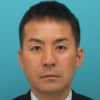
Satoru Chatani
National Institute for Environmental Studies
Senior researcher in the Center for Regional Environmental Research
Satoru Chatani is a Senior researcher in the Center for Regional Environmental Research at the National Institute for Environmental Studies. He holds a Master of Engineering from Kyoto University (1998) and graduated as a Doctor of Science from the Graduate School of Environmental Studies (Nagoya University) in 2011.
Satoru Chatani has worked at Toyota Central R&D Labs from 1998 until 2015. Since 2015, he has been working at the National Institute for Environmental Studies. His research is focused on atmospheric environment, air pollution, air quality simulation, and emission inventory.
Health
Deep dive session
STI roadmaps as a tool to build preparedness and resilience to COVID-19 and future health crises
27/10/2020, 17:00 - 18:30
The mitigation and prevention of the effects of pandemics and other health crises depend on the preparedness of health systems and society in general. From the COVID-19 pandemic, the world has learned that Science, Technology, and Innovation play a fundamental role in identifying and preventing damage and controlling the problem. STI roadmaps for the SDGs are an essential tool to increase countries’ capability to respond to these situations. In this sense, a series of activities are being developed, in partnership between the UN Technological Facilitation Mechanism (TFM) and some countries, to test a methodology that will help to establish or improve national and international STI capacity.
Questions such as
– How can STI roadmaps for the SDGs be used to establish preparedness and response to zoonotic diseases from short and long term perspectives?
– What are the key factors to enhance social and economic resilience to health crises?
– What are desirable frameworks of international cooperation for advancing R&D?
– What is the role of education in the preparation for COVID-19 containment and future crises?
guide discussions on how STI roadmaps for the SDGs can help establish adequate preparedness and responsiveness to health crises, along with the examination of the results from recent experiences with these roadmaps.
Chaired by

Michiharu Nakamura
Japan Science and Technology Agency
Senior Advisor (Former President)
Nakamura graduated from the University of Tokyo and joined Hitachi Central Research Laboratory in 1967, where he was engaged in compound semiconductors and optoelectronics research. He was a pioneer of semiconductor DFB laser development. In 2004, he was appointed Executive Vice President and Executive Officer of Hitachi Ltd., and then assumed a position of Board of Director till September 2011. He was responsible for corporate technology development and new business incubation. He was a visiting Researcher at California Institute of Technology in 1972-73. He is entitled IEEE fellow, JSAP fellow, and IEICE fellow for his engineering achievements in optoelectronics.
In 2011, he assumed the office of the President of Japan Science and Technology Agency (JST), where policy-driven R&D funding is a major mission. Also, the dissemination of scientific information, science education for young generation, and science communication are among its current activities. He endeavoured to achieve high-impact innovations based on advanced R&D. After completing four- year presidency, he has been serving as the Counsellor to the President and Advisor for Science and Technology of JST since October 2015.
He has been actively working on industrial science and technology strategy. He served as Working Committee Chairman of Council of Competitiveness Japan (COCN) from 2008-2011 and pursued new industrial R&D initiatives under close collaboration with government and academia. He also served for Industrial R&D Committee of the Japan Business Federation, Tsukuba Global Innovation Promotion Agency, Industrial Committee for Supercomputing Promotion, Industrial User Society for Neutron Application, and Nanotechnology Business Creation Initiative.
The development of STI Roadmaps and its benefits for health crises preparedness
The Agenda 2030 for Sustainable Development, unanimously adopted by the United Nations member states in 2015, launched the Technology Facilitation Mechanism (TFM) to support implementation of the SDGs. “Science, Technology and Innovation (STI) Policy Frameworks, Action Plans and Roadmaps” has been one of TFM’s key deliverables, advancing multi-stakeholder dialogues including through previous G-STIC conferences, producing a joint guidebook, launching the first phase of the global pilot program and promoting international partnerships to improve functioning of science-policy interfaces and harnessing technology and innovation for the populations needing them the most. This presentation will introduce the background and current state of the related initiatives and discuss their relevance to health crises preparedness.
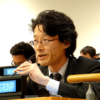
Naoto Kanehira
World Bank
Senior Private Sector Specialist
Naoto Kanehira is a Senior Private Sector Specialist at the World Bank. Leading and contributing to operations and initiatives on science, technology and innovation at corporate, country, regional and global levels, he has co-led the work on STI for SDGs Roadmaps at the UN Inter-Agency Task Team on Science, Technology and Innovation (IATT-STI), and currently serves as the secretariat for World Bank’s Covid-19 vaccine delivery taskforce in support of the $12 billion commitment for vaccine purchase and delivery by developing countries. Prior to joining the World Bank, Naoto co-founded a mobile internet software start-up in 1998 and worked for McKinsey from 2000 to 2010. Naoto holds an MPA from Harvard University and an MSc in Management from Massachusetts Institute of Technology.
Lessons from the Vietnamese experience with health Roadmaps

Meng Ling Moi
Nagasaki University
Professor at the Institute of Tropical Medicine (NUITM), Deputy Director at the WHOCC for Reference and Research on Tropical and Emerging Viral Diseases
Moi is a virologist who has been working on prevention measures against tropical and emerging virus diseases. Her research focuses on viral pathogenesis and transmission, diagnostics and vaccine development, surveillance of viral emergence, and population immunity to tracking viral spread, epidemiology, and field research.
Moi’s projects have led to the successful development of in vitro and in vivo models for dengue vaccine evaluation studies. These novel models have also led to a better understanding of the immune responses induced after dengue and zika virus infection. Moi is currently the Deputy Head of WHOCC for Reference and Research of Tropical and Emerging Virus Diseases (JPN-67). She is working closely with WHO GLAD-HP and GOARN, local and international communities to reduce the global spread of high threat pathogens diseases and to improve rapid diagnostics to these outbreaks, including Zika and SARS-CoV-2.
COVID-19 in Ethiopia: Facts and resilience strategies through strong partnerships
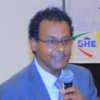
Solomon Benor
Ministry of Science and Higher Education (MoSHE), Ethiopia
PhD, Director General for Science and Research Affairs
Solomon Benor is currently working as a Director General for Science and Research Affairs at the Ethiopian Ministry of Science and Higher Education (MoSHE); he is also affiliated to the Department of Biotechnology of the Addis Ababa Science and Technology University. Dr Solomon is Plant Biotechnologist with over 23 years of research experiences in biodiversity conservation, plant biotechnology, plant breeding, and environmental sciences.
Solomon has extensive national and international research work experiences. He worked as a Post-Doctoral Scientist at Biosciences for Eastern and Central Africa (BecA) in Nairobi, Kenya; Research Fellow at Leibniz Institute of Plant Genetics and Crop Research in Gatersleben, Germany; TWAS Research Fellow at Nanjing Agricultural University in Nanjing, China; Researcher at Norwegian Institute of Gene Ecology in Tromsoe, Norway; Lecturer at Hawassa University, Ethiopia; and Plant Breeder at Sirinka Agricultural Research Center, Ethiopia. Dr Solomon has produced numerous scientific papers published in internationally peer-reviewed journals.
He is currently serving as Associate Editor of the Ethiopian Journal of Crop Science; Associate Editor of the Abyssinian Journal of Science and Technology; Executive Member of the Crop Science Society of Ethiopia; and Member of the Biological Society of Ethiopia. Dr Solomon is a nationally recognized researcher and awarded by the Abyssinian International Award in 2019 for his life-time research achievements and community services in Plant Science research areas. Educational backgrounds of Dr Solomon include PhD in Plant Biotechnology at Kassel University, Germany; M.Phil in Plant Molecular Biology at Tromsoe University, Norway; BSc in Plant Sciences at Haramaya University, Ethiopia; and Diploma in Animal Sciences at Addis Ababa University, Ethiopia.
Water
Special session
Roundtable Aquafin
27/10/2020, 11:45 - 13:15
No water resilient cities without engaged citizens
Climate change significantly affects cities. The increase extreme weather events forces cities to rethink their water management. To cope with the impact of climate change, many are thinking about how they can evolve into a water resilient city and some are leading by example. Despite the fact that many interesting projects can be done to reshape the public domain, citizens will have to participate as well to make cities water resilient and to reach the ambition of becoming climate proof.
In this round table discussion, the difficulties cities and sewer operators experience in practice will be discussed to convince citizens to engage them and even to take action themselves. What are the best channels to reach them? Do they feel the urge to act? What is holding them back? Who starts the conversation? What (digital) tools are useful?

Brecht Donckels
Aquafin
R&D Engineer

Birgit De Bock
Aquafin
R&D Engineer
